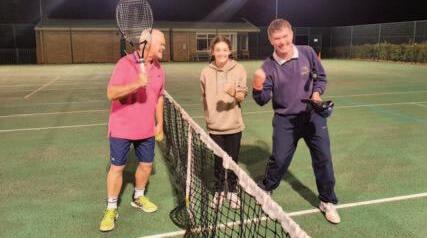The ALMONDBURIAN
THE MAGAZINE OF THE OLD ALMONDBURIANS’ SOCIETY


THE MAGAZINE OF THE OLD ALMONDBURIANS’ SOCIETY

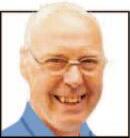
magazine of The Old Almondburians’ Society
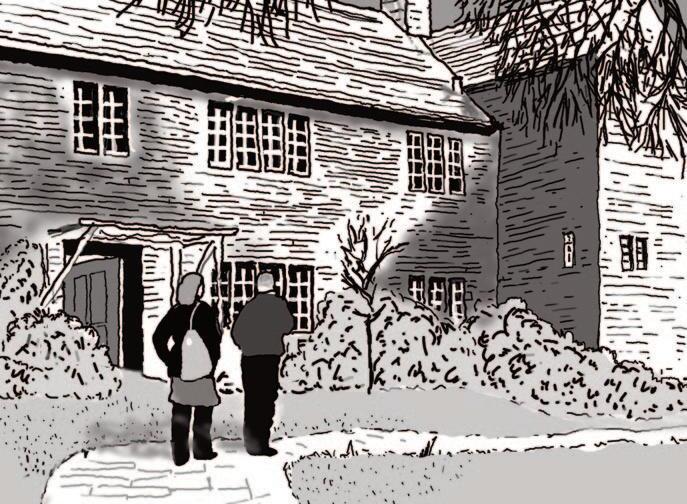
AS with all new years the Society began with the AGM and once again it was a Zoom meeting. As last year progressed and we used this form of communication more I felt the meetings became better. They were certainly focussed as we were timelimited and gradually more members began to
join us, including on one occasion a couple of welcome members from the USA. I hope this continues – there is no pressure on members who join us for the odd meeting to take on any commitments! I was delighted that a member living in the Lake District joined us for the recent AGM so please give us a try in 2021.
And so to the AGM. I am pleased to say that all the Society Officers from 2020 agreed to continue in their roles, so a big thank you to Andrew, Keith, Roger, Chris, Richard, Graeme, Michael and Ian. Without them the Society would grind to a halt. We also have a welcome new lady member Dawn Smart and I should also like to welcome an old OAS member Simon Russell who has re cently taken a step back from his own businesses to offer to help. I was delighted when he recently agreed to take up the new post of Minutes Secretary; it is an important role which is aimed at reducing the work load of Andrew our Secretary and I personally thank him for his willingness to get involved.
The AGM gives me a chance to review the past year and look at what has gone well and what needs some improvement. This year was a little different as one event after another was cancelled because of Covid. We can only work hard to make sure events such as the Annual Dinner, Founders’ Day Church Service and Heritage Weekend are particularly outstanding occasions. I have it on good authority that the Quiz Evening, which will have to move to later in the year, will be better than ever! No pressure there, Keith.
Regarding our plans to celebrate the Centenary of the Society we reported in the last issue that we planned to plant a new oak tree to replace the old ‘Big
Tree’ which unfortunately met its demise back in the 1990s. This plan has changed slightly and we now propose to construct hexagonal seating around an existing old yew tree not far from where ‘Big Tree’ originally stood. Chris West is drawing up some plans which we hope to implement during the course of the coming year.
I’m sorry to report that we have encountered some planning problems in regard to the plan to erect a Blue Plaque on the walls of the Schoolhouse in memory of Rev Frank Marshall whose activities led to the setting up of what we now know as the Rugby Football League. We’ll keep you informed of future plans.
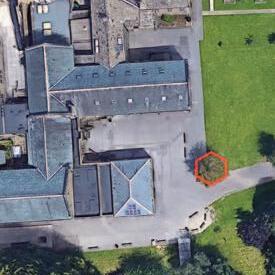
And so to my major disappointment this year. I seem to have been promising in successive magazines that we were in a position to get the Archives catalogued in a professional way by the West Yorkshire Archive Service. This is still our intention but one delay after another has been forced on us, largely but not wholly because of Covid-19. I sincerely hope that 2021 will see the start of this work.
And finally, please put the Annual Dinner date of 20th November 2021 in your calendar so we can celebrate the OAS centenary this year in an even bigger and better way than we had planned for 2020.
Keep safe, get your vaccination and I look forward to seeing many of you during the year at OAS events. n

SINCE the last magazine was published, we have been delighted to welcome five new members to the Society:
l Annabel Haigh, (2015-20) from Almondbury. Annabel was one of last year’s Senior Students at King James’s School and is now studying at Greenhead College for ‘A’Levels in Chemistry, French and History.
l Robert Hirst (1966-73), now living in Brisbane. He tells us that he used to live two doors away from former teacher ‘Sid’ Chapman and knew him well. He remembers him a kind man and a true maths prodigy who founded the school Polyhedron Society. He has his quasirhombicuboctahedron to this day.
l Rebecca Hemingway (1991-96), now living in Halifax.
l Emma Hall (née O’Donnell, 1991-96), from Skelmanthorpe. After leaving King James’s, Emma studied ‘A’ levels at Greenhead College before going up to the University of Manchester to read psychology. Since graduating, she has spent seventeen years working in management roles in the National Health Service and has worked for the national body, NHS England, since 2013. Her substantive role is as Director of Urgent and Emergency Care Transformation, where she has responsibility for the operational and strategic framework by which all ambulance services in England operate. She mentions that Covid-19 has been challenging for everyone in the NHS, especially frontline colleagues, so she is currently seconded to a role leading part of the testing operation for both staff and patients in the NHS.
l Scott K Huson (1990-95), now resident in Woodinville in the state of Washington, USA. Scott was inspired to join the Society after reading No Beating About the Bush, which he described as the highlight of this year’s holiday season. Scott is now forty-one and moved to the United States almost six years ago. He became a United States citizen last January but says that he retains his Yorkshire accent! He lives with his wife, Caitlin, and their dog, Quinn, just outside Seattle. Scott is a Marketing Director with Microsoft and says that he very much enjoys all that life there has to offer.
Sadly, during the same period we have learned of the deaths of John Stuart Sykes (1950-55), resident in Burton-upon-Trent; Alan Keith Marshall (1963-70), resident in Malton; and John Hilton Dyson (194854), resident in Norway.
For the few members who do not pay their subscriptions by standing order, please remember that your £10.00 subscription for 2020-2021 fell due on 1st September last year. Thank you to those who have recently brought their subscription up to date; however, if you do receive a letter with this magazine pointing out that your subscription is not up to date, please do send your payment without delay. It does make life much easier if you can complete the updated standing order mandate that accompanies the letter and return it in the envelope provided. Alternatively, you may renew online, using PayPal or a debit or credit card, by visiting www.oas.org.uk and clicking on the ‘Join/Renew Online’ button. n
KJS Principal Ian Rimmer looks back on a year to forget –but one that will long be remembered.

WELL, my 2020 vision didn’t see this coming! A key role of any leader is to plan for the future, but I confess that Covid wasn’t on my horizon. In my 30 years’ experience, I have never seen a time that even remotely approaches this one. Still, it’s something to add to our King James’s School timeline; I wonder how students of the future will look back on 2020.
Whilst clearly the pandemic has been devastating across the world in all sorts of ways, it is difficult to summarise adequately the turmoil into which education has been thrown over the past year. On 20th March, Secretary of State for Education, GavinWilliamson, announced that schools in England would close for an unspecified length of time, but would still look after the children of key workers, and vulnerable children.What followed were more than 500 individual directives, with guidance being changed not only daily, but also in some cases on a twice daily basis.
Shortly after the announcement to close, the government also announced that GCSEs (and A Levels) were to be cancelled, an unprecedented event in educational history, and that in their place grades were to be based on teacher-predicted grades. Following the release of the A level results on 13th August, it became apparent
IAN RIMMERthat the moderation algorithm had delivered some controversial results. Following considerable public outcry, Ofqual decided to withdraw the computed results, and to regrade students based solely on the original teacher predictions. Before the GCSE grades were released on 20th August, it was decided that they would be based on the teacher predictions too.
Like all other secondary schools, we had reopened in June only forYear 10, whilst the rest of the school remained at home being taught remotely. In September, we reopened to all, with a number of changes in place to ensure a more Covid-secure environment.At King James’s we made the early call to make mask-wearing compulsory in all indoor communal spaces where social distancing was not possible. Regular hand washing/sanitising, a one-way system to facilitate better social distancing and open doors and windows (whatever the weather) were some of the measures implemented. And thus, within these very abnormal constraints we attempted to return to some sort of normality.
Like most other schools, we have had our share of positive Covid cases, a mix of staff and students, with far more selfisolating for 14 (and later, in line with government guidance, 10) days. For whenever someone is a close contact (at school that
In my 30 years’ experience, I have never seen a time that even remotely approaches this one
means having been within one metre for one minute or two metres for 15 minutes) they must self-isolate to stop the spread of the virus.You can imagine the decimating impact that has on the workforce and student population. Much has been said, and subsequently contradicted, about the likelihood or otherwise of secondary age children catching and/or transmitting the virus. Based on our experience, I can confirm that they can!
And thus, we stumbled along through the Autumn term, coping with significant staff shortages.The Christmas break was going to be a hugely welcome relief, more so than ever before.And then, a day before the end of term, we were advised that schools would be required to set up mass testing of their staff and students on their return – oh, and have a nice holiday!
On 4th January, schools were instructed to switch to remote learning until at least the February half term. Students were encouraged to revert back to studying at home, with work being set by their teachers via Microsoft Teams – 12 months ago, nobody had even heard of such things, but how things have changed.
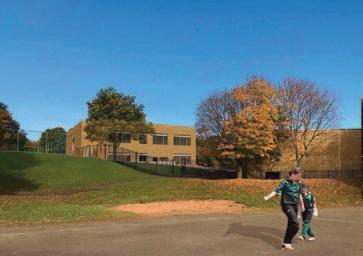
As I write this, GCSEs have once again been cancelled for 2021, but we are yet to hear how the grades will be calculated this time. Equally, the roll out of testing has been delayed; just as well, as the guidance on how to set up your own test centre was extensive. I recall that I entered the profession as a
teacher; nowadays that role typically involves also social work and now, it seems, I can add medical practitioner to my skill set. I often muse at how employable teachers must surely be.
Aside of Covid, there has been much to occupy my thoughts. King James’s School has had to negotiate two considerable, interwoven rocky paths.With the closure over the summer of Almondbury Community School (ACS), we saw 120 students joining us.Without additional space at St Helen’s Gate, this significant (approximately 15%) increase in student population prompted the need for us to educate our new Year 7 children on the site of the former ACS.Working across a split site brings inevitable challenges, which we are working hard to overcome.
Meanwhile, in order to create capacity for these children in the long-term, we have been pursuing a considerable site development programme. This will involve the erection of a new 10 classroom block, (described in the last issue of The Almondburian), alongside some internal works. Initially the planning permission for the new block was deferred, but finally on 17th December it was given the green light.
So now the hard work begins, ensuring the School continues to function effectively whilst a new building is being constructed just a few metres away during an international pandemic. What could be easier!
Floreat schola!
Due to Covid-19 restrictions, the Annual General Meeting of the Society was held remotely by Zoom on Monday, 4th January, 2021, at 7.30 pm.
Walter Raleigh (chair) Chris West Keith Crawshaw Richard Taylor
Andrew Haigh Richard Teale Dawn Smart Allan Dobson
Abbi Terry Simon Russell Graeme Milnes David Morrison
Ian Rimmer, Edward Royle and Michael Powner.
The minutes of the meeting held on Monday, 6th January 2020 were read and approved.
Comment was made regarding the current costs of postage.Keith was happy to report that 90% of subscribers were happy to take the hard copy rather than a digital version – this includes overseas members who still all prefer the link to the Society that a hard copy provides despite extra charges to them for delivery.See later comment from Keith.
Walter confirmed that the Dartmouth Medal had not been awarded in 2020. Regarding the tree project Dave Morrison warned of the poisonous nature of yew trees which was duly noted.
The year began with great enthusiasm as we looked forward to celebrations throughout the year to mark the centenary of the Society.All sorts of things were discussed but all were to be left undone as the Coronavirus pandemic swept through the country and devastated normal life.
The first annual event to bite the dust was the Quiz Evening which Keith prepares throughout the year.We hope that Keith is gearing up for an even bigger celebration this year.
Our main plans for the year centred on a special Annual Dinner and two excellent guest speakers were approached and accepted our invitation.They were David Morphet and Bob Field, one a distinguished former student and the other a greatly respected and well loved member of staff.Fortunately both have now agreed to speak at this year’s Dinner.
Plans had been made with the School, through the cooperation of Principal Ian Rimmer and Assistant Head teacher Abbi Terry, for the students to be more involved in the church service on Founders’ Weekend. Over the last few years a small group of musicians have performed at the service but larger numbers of School representatives were to be included in a Friday performance. Again,I hope these will be put in place in November 2021.
The September Heritage Weekend project was also cancelled. This year the theme was to show the part played by the School’s former headmaster Rev Francis Marshall in the ‘Rugby Split’ of 1895. Further to this, permission was being sought for a Blue Plaque to be put on the wall of the Old School House to mark this link, on the occasion of the celebrations of the 125th anniversary of the Rugby Football League.
This last project did not go quite according to plan when a reporter from the Huddersfield Examiner saw our planning application and wrote a story about the School wanting to ‘honour ‘Marshall.This was not what was intended but Planning Approval has now been delayed after a number of objections were made to the Council. A decision is expected by 18th January.
Another project which is in the development stage is the replacement of ‘Big Tree’. After consultations it has been decided to build a seating area around an old yew tree a few metres away from where the Big Tree was situated.This will be a lasting legacy for our centenary celebrations.
It has also been a pleasure this year for the Society to help in the publication of a dairy kept by the former Deputy Head, the legendary Dave Bush.We sought and achieved over150 subscribers to support the project as subscribers and thereby cover the initial printing costs. Sales of the book are now over 200.We thank all purchasers; ongoing sales of the book will produce a profit to be shared between Dave and the Society. It was disappointing that the cancellation of the Dinner meant that Dave was unable personally to launch the book.
Another problem raised by the virus has concerned our ability to continue to function as a Society when, throughout lockdown, members were unable to meet in person. Through the inventiveness of Andrew Haigh and Roger Dowling the monthly meetings have been able to continue via Zoom and I thank them for the work they have done to make this possible. It presents a new opportunity for OAS members to take part in our committee meetings.
My major disappointment this year has been the lack of progress on the Archives. We have received an offer from the West Yorkshire Archive Service to catalogue all our archive material free of charge but so far we have failed to get the material down to the Library.This must be rectified as soon as possible.
And finally it is only right we should extend our congratulations to Ian, Abbi and all the staff at King James’s for their success in absorbing all the additional students from Almondbury Community School into an already overcrowded King James’s School.
Keith Crawshaw presented the accounts for the financial year ended 31st August, 2020.
Keith was happy with the year with an excess of income over expenditure of £332.95. The fact that subscription income had slightly increased its margin gap over magazine costs was particularly pleasing.
The accounts were proposed by Roger Dowling, seconded by Richard Teale and carried unanimously.
Membership Secretary’s Report
Andrew Haigh reported that, at the end of the last financial year, membership stood at 464, a decrease of four from the figure of 468 at the same time last year. During the year, eight new members had been recruited and two lapsed members had re-joined. Sadly, these numbers had been offset by the deaths of eleven longstanding members and the lapsing of a further three members.
Subscription rate for the Financial Year commencing 1st September 2021
Keith Crawshaw felt that in view of our financial position we don’t have any need to increase the subscription rate, so he proposed keeping it at £10.00 per annum. However, he asked that we formally adopt the policy of asking overseas members to pay an additional £10.00 per annum contribution towards postage costs or to take the magazine electronically. This proposal was seconded by Chris. West and carried unanimously.
The Chairman proposed that the Principal should be invited to continue as President of the Society for 2021 and Ian Rimmer was duly re-elected.
Unfortunately, Ian Rimmer was unable to attend and had tendered his apologies, so there were no President’s Remarks.
Election of Executive Officers for 2021
Walter Raleigh agreed to continue as Chairman for 2021 and he was re-elected unanimously.
The other Officers were then elected as follows:
Vice-Chairman
Honorary Secretary
Honorary Treasurer
Media Editor
Chris. West
Andrew Haigh
Keith Crawshaw
Roger Dowling
Richard Teale (Assistant Media Editor)
Simon Russell (Minutes Secretary)
Graeme Carby
Martyn Hicks
Michael Powner
Dawn Smart
Vacant
Representative of the School Abbi Terry
The Secretary asked that the date and venue be fixed for the next meeting of the Executive Committee. The first Monday in February is the norm and Monday, 1st February was agreed.
Keith Crawshaw said that we would usually set a date for the annual Quiz Evening. However, under current circumstances we will have to wait and perhaps organise it for October.
Walter Raleigh mentioned that he had recently heard the sad news of the deaths of two former members of staff: Shirley Thackeray and Steve Briggs.
On a brighter note, Roger Dowling mentioned that two members of the Society appeared in the New Year Honours List: Nigel Priestley received an MBE and Christopher Mann received an M VO, which is in the personal gift of The Queen.
Zoom
Comment was made regarding future meetings having a mix of Zoom and physical presence. All agreed that this was the best way to get outlying members involved, as witnessed by the the welcome appearance by David Morrison, Dawn Smart, Allan Dobson and Graeme Milnes.
The Meeting closed at 8:32 p.m.
Signed S A Russell P W Raleigh Minutes Secretary ChairmanPresident Ian Rimmer King James’s School Work telephone: (01484) 412990
e-mail: staff.irimmer@kingjames.school
Chairman Walter Raleigh 15 Thorpe Lane Telephone: (01484) 308452
Almondbury e-mail: walterraleigh@hotmail.co.uk
Huddersfield
Yorkshire
HD5 8TA
Vice- Chris West 7 Brookside Telephone: (01484) 843518
Chairman
Crimble e-mail: cwest225@btinternet.com
Slaithwaite
Huddersfield
Yorkshire
HD7 5BZ
Hon Secretary Andrew M. Haigh 2 Arkenley Lane Home telephone: (01484) 432105
Almondbury Mobile: 07770 220733
Huddersfield Work telephone:(01484) 400032
Yorkshire e-mail: andrew@rdhaigh.com
HD4 6SQ
Hon Treasurer Keith Crawshaw 5 Benomley Drive Telephone: (01484) 533658
Almondbury e-mail: keithcrawshawrhb@gmail.com
Huddersfield
Yorkshire
HD5 8LX
Media Editor Roger Dowling
Orchard House Telephone: (01925) 756390
Oughtrington Lane Mobile: 07815 601447
Lymm e-mail: roger.dowling@oas.org.uk
Cheshire
WA13 0RD
Assistant Richard Teale The Sycamores Mobile: 07810 313315
Media Editor 239 Huddersfield Road richardteale@hotmail.co.uk
Thongsbridge
Holmfirth
HD9 3TT
Minutes Simon Russell Phoenix Cottage Telephone: (01484) 685365
Secretary Upper Hagg Road e-mail: sarussell153@btinternet.com
Thongsbridge
Holmfirth
HD9 3TF
Ordinary Graeme Carby 10 Rectory Drive Telephone: (01484) 302252
Committee
Members
Kirkheaton e-mail: graeme.carby@gmail.com
Huddersfield
Yorkshire HD5 0JT
Martyn Hicks 12 Gernhill Avenue Telephone: (01484) 539409
Fixby e-mail: martyn.hicks@hotmail.com
Huddersfield
Yorkshire HD2 2HR
Michael Powner 45 The Fairway Telephone: (01484) 423365
Fixby e-mail: mikepowner@ntlworld.com
Huddersfield
HD2 2HU
Dawn Smart 8 High Seat Hill Telephone: 07824 881132
Lazonby dawn@mysmartmusic.co.uk
Penrith CA10 1AW
Chaplain Vacancy
Represent- Abbi Terry King James’s School Work telephone: (01484) 412990
ative of the e-mail: staff.aterry@kingjames.school School
Head Boy Quinn Little King James’s School Telephone: (01484) 412990
Head Girl Kate Booth King James’s School Telephone: (01484) 412990
Badminton Andrew M. Haigh 2 Arkenley Lane Home Telephone: (01484) 432105
Section Almondbury Mobile Telephone: 07770 220733
Representative Huddersfield Work Telephone: (01484) 400032
Yorkshire Facsimile: (01484) 469567
HD4 6SQ e-mail: andrew@rdhaigh.com
Golf Section Robin E. Merchant 26 Jagger Hill Mobile Telephone: 07933 200475
Representative Kirkheaton e-mail: robin.merchant@talktalk.net
Huddersfield
Yorkshire HD5 0RA
Tennis Section Andrew M. Haigh 2 Arkenley Lane Home Telephone: (01484) 432105
Representative Almondbury Mobile Telephone: 07770 220733
Huddersfield Work Telephone: (01484) 400032
Yorkshire Facsimile: (01484) 469567
HD4 6SQ e-mail: andrew@rdhaigh.com
Independent J A Swift Examiner
Vice-Presidents Ken G Shaw J Andrew Ward
Richard J Green
Keith Crawshaw Paul Balderstone J Richard Taylor
John M.Drewery Jack A Taylor J Amanda Taylor
Malcolm J Taylor James N Taylor
David Gary Croft
David A Bush Graham Cliffe Robert Williams
Bryan Hopkinson Emily Murphy Nicky Murphy
Nicky Briggs Patrick O’Brien Robert Lamb
Andrew Haigh Roger Dowling
Opposite: INCOME & EXPENDITURE ACCOUNT BALANCE SHEET
W Raleigh (Chairman)
K Crawshaw (Treasurer)
J A Swift (Independent Examiner)
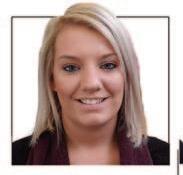
Our correspondent is sadly leaving King James’s School to take up a senior appointment at Bradford Forster Academy. It’s not been easy to say goodbye, she reports
MY time at King James’s School has come to a very emotional end.
From the moment I walked through the doors in September 2017, to the moment I left in December 2020, I documented my journey: the highs, the lows, collapsed ceilings, singing students, teaching sign language, teaching through a pandemic, the list is endless.
King James’s School has watched me grow in so many ways and given me a platform to start a new adventure as a Head of Year and English Teacher at Bradford Forster Academy.
I was sad to say goodbye to some truly amazing colleagues and genuine friends for life. However, I was extremely gloomy to leave behind my wonderful students: the people that made King James’s School such a fabulous place to have worked. They filled me with such pride and watching them grow over the three and a half years that I spent at King James’s

made my job worthwhile each and every day. The thing about our students is that, no matter what kind of day you are having, they will always empathise and try to brighten it.
There were times where I would have a migraine and I would have to teach without the classroom lights on. If they ever walked in and the lights were off, they knew; they sat quietly, hushed others that walked in and worked quietly throughout the lesson, making my life so much easier.
On the day I left, I was inundated with cards from students telling me how sad they were that I was leaving. I was honoured to have made such an impact on their lives. I cannot wait to see where they all end up in the future. I wish them all the best of luck in their exams (if they go ahead) and beyond.
It has been an honest pleasure to be a part of the King James’s community and a minuscule part of the Old Almondburian Society’s history.
I should like to thank Ian Rimmer for giving me the opportunity to find my feet as a teacher. I had a lot to learn as a young, recently qualified teacher. I should also like to say thank-you to The Almondburian for giving me the op -
portunity to document my memories and share with you all the madness of such a beautiful career.
And finally, I hope that you have all enjoyed reading my ramblings.
Goodbye.
We’re delighted to welcome assistant principal ABBI TERRY who will be helping to keep us up to speed with teaching at KJS today
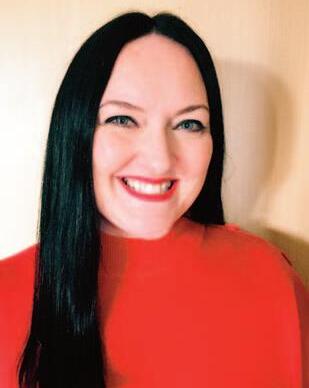
NOW that we have said our fond farewells to Lauren Nutton, both in School and through the OAS Magazine, I would like to introduce myself as your new correspondent from the coal face of King James’s School.
My name is Abbigail Terry although I am more commonly known as Abbi to friends and colleagues or Mrs Terry to the students.
I had a varied career before going into teaching, including working in an envelope factory, in a hospital, at a camera shop and I also worked for social services. It is safe to say that teaching is the hardest but also the most rewarding job in my view (although working in a hospital and for social services was incredibly difficult, heart breaking and eye opening too!)
I joined the teaching profession in 2002 after completing my degree in Sociology and Theology (two ‘ologies’ –I’m still taken back to the Maureen Lip-
man BT adverts even to this day). My first teaching job was in a boys’ high school. The only phrase that I can use to describe that experience is that it was a baptism of fire. As a young woman, it was hard to begin with but I found that colleagues there were supportive and once the students knew that I had their best interests at heart, then they were the most loyal young people I have ever come across.
My second teaching job was in an 11 – 18 school where I taught A-Level Sociology and Theology as well as Religious Education to the younger students. I loved the job but once I settled down and started having children, I realised that the travel was a challenge. In a kind twist of fate, my family and I moved to Denby Dale from Dewsbury at the same time that I was appointed at King James’s School. This was a sideways move as a Head of Department but it felt right for me.
I remember on the interview day
being completely overwhelmed by the School. I had seen the photos online but nothing prepared me for the history, the atmosphere and ethos of the School – it was incredible and I knew I wanted to become part of the School. I still thank my lucky stars that I was given the job by Mr Lamb. I wasn’t convinced that I would be successful. One of the other candidates had far more experience than I, and I was sure
that she would get it so when Mr Lamb rang me less than an hour after I had left to ask if I would like to accept the job, I remember screaming “You are joking! YES!!!” in his ear.
I am now an Assistant Principal at King James’s and I still love the School. I look forward to sharing my experiences, observations and thoughts in future issues of The Almondburian .
Until next time, take care. n
This will take place later in the year because of the current Covid-19 pandemic. Look out for a further announcement in the July issue or online.
GOLF
We are hoping that the 2021 Gothard Cup competition will take place on Sunday, 13th June at Woodsome Hall from 3.00 pm. Further details: page 60.
TENNIS
See page 60.
This year’s Annual Dinner, postponed from 2020 because of Covid-19, will a special one to mark the centenary of the founding of the Old Almondburians’ Society in its present form.The dinner will be held on Saturday, 20th November and full details, together with an application form for tickets, will appear in the next issue of The Almondburian.
Full details will appear in the next issue.
Executive Committee meetings are usually held on the first Monday of the month, although there is no meeting in August. Due to Covid-19 restrictions, they are currently being held virtually by ‘Zoom’ at 7.00 pm which means that members who are usually unable to attend in person can now do so. Any member of the Society who would like to attend one of these meetings will be made most welcome on the following dates:
Monday, 1st March
Monday, 12th April
Monday, 10th May
Monday, 7th June
Monday, 5th July
Monday, 6th September
Monday, 4th October
Monday, 1st November
Monday, 6th December
If you would like to join us, please e-mail andrew.haigh@oas.org.uk to request login details.
THERE can surely be few Almondburians who do not feel saddened by the virtual disappearance of cricket from the lives of those who attend King James’s School today. It’s a far cry from those days 70 years ago evoked by this photograph of the 1954 School XI, captained by the then Head Boy Ian Shaw who sadly died in 2019.
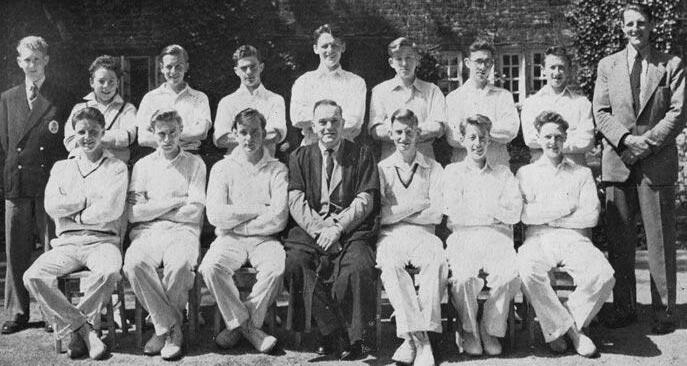
Ian Shaw was a formidable talent who represented the School at football and chess as well as cricket. His love of cricket and football had been fostered at primary school where a fellow pupil was Ken Taylor who went on to open for Yorkshire and England and play centre half for Huddersfield Town.
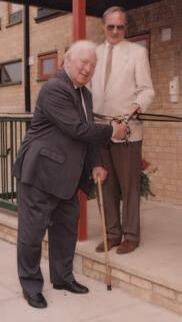
It was no coincidence that cricket was in those days a highly regarded summer sport: Headmaster Harry Taylor was himself an elegant batsman and was reputed to be ‘a bowler of wily leg spin’. A little-known connection between Shaw and Harry Taylor is that they shared the same birthday of 23rd June. Shaw said in later
years: “Harry Taylor taught me probably all I knew – how people can be greater than they think in spite of themselves, how they can dream if they dream at all, and how they can enrich our lives if we can encourage them to fulfil their talents and fulfil themselves.”
Ian Shaw went on to become the highly successful headmaster of Bishop’s Stortford High School. He retained his deep love for all sport and a magnificent new £100,000 two-storey pavilion there was named, behind his back, the Shaw Pavilion. It was opened in 1995 by cricketing legend Denis Compton (right). n
Back row: Michael Sykes (scorer), Barrie Baker, Terry Wilkinson, Trevor Sims, Graham Gelder, Malcolm Brigg, Neil Schofield, Ken Burgess, ‘Dusty’ Binns
Front row: John Copley, Ian Shaw, Carl Goldsmith, Harry Taylor, Trevor Stocks, John Binns, Peter Shaw
THEpoem below appeared in The Almondburian at the height of World War 2 in July 1942. “We are told that this is a war of nerves and that rumour has a bad effect on morale. Evidently this was known even to Virgil,” wrote sixth-former Gerhard Schlesinger (ironically of German origin). Demonstrating the point, he penned this translation of what Virgil had to say on the subject in The Aeneid, Book IV.

Fleet of foot and swift, on vig’rous wings, The loud report through Libya’s cities rings; She hastens on—no quicker ill than fame, E’en to the sky is raised her giant frame. New strength she gathers as she goes, each pace Gives added force to speed her evil race. Last born of Earth was Fame, or so men say, Brought forth in ire ’gainst Jove’s eternal sway; Titanic spectre of most monstrous size, Her sight enlarged she has, by luminous eyes
By num’rous as her plumes in their bright dyes. A thousand ears up raised, her countless tongues ln countless months repeat their wicked songs. By night she flies, o’er earth and through the sky, Nor does sweet sleep close once one watchful eye; On topmost roofs she sits, on towers high, All day the world hears her discordant cry; Now rumour whispers ’midst the trembling crowd, Now shouts and yells disastrous news aloud; She tells of many men, and news she brings Of good and evil, done and undone things.
G Schlesinger (6) with a little help from Virgil
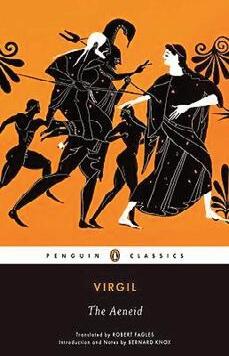
SCHLESINGER was one of the two formidably talented brothers who attended Almondbury Grammar School between 1939 and 1945, the other being Wolfgang Schlesinger who was a former editor of The Almondburian. Both won the Dartmouth Medal before going on to study at Oxbridge. At Brasenose College, Oxford, Gerhard studied Classical Moderns. Having developed a keen interest in politics, he became a member of the Liberal Club and became editor of the university magazine Isis for the year 1945-6.
Gerhard subsequently anglicised his name to Gerard Slessenger and taught at a prep school in Durham before later joining the BBC Monitoring Service. He then moved into the BBC News Division and spent some time in the 1960s as Editor of ‘News Extra’ on BBC Television. He finally became a senior figure in BBC Radio News.
Our latest book No beating about the Bush, published last November, has received acclaim from readers.

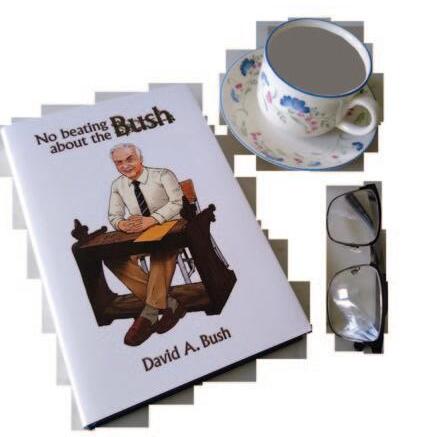
— PAGE 22 —
Farnley Lines and a selection of emails from former pupils
— PAGE 26 — Writer Claire Roberts reminisces about her Latin lessons
— PAGE 29 —
Rod Sykes describes how the book brings back memories of his own teaching days
‘Iremember that my last contribution was dominated by two subjects: coronavirus and The Book. Little has changed in some ways since then. The virus continues to dominate everyday life and prevents planned excursions taking place.’
The sharp-eyed among you will have noted that these first lines of my latest epistle are in inverted commas, for they are the ones I wrote in the November issue. Plus ça change, plus c’est la même chose. How true that is.
I reflect how so many personal plans for 2020 did not come to fruition; our grandson’s wedding in Galicia, the Great Family Gathering to celebrate our Diamond Wedding anniversary, our birding trip to Panama. Add to these the cancellation of the OAS Dinner to mark the Society’s centenary during which, my No Beating about the Bush was to be launched.
So many negatives but there
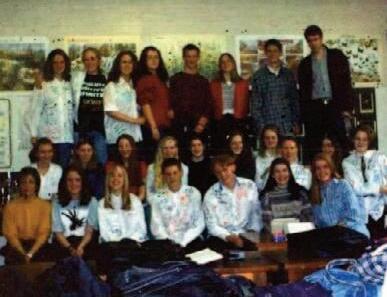
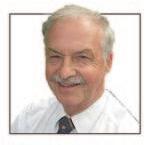
have been so many positives too, for my book seems to have awoken renewed interest in both School and Society. It was roughly calculated that 150 subscribers would guarantee a breakeven point for publication costs; what delight that the total was around 160. As I write, sales are now in excess of 200 and
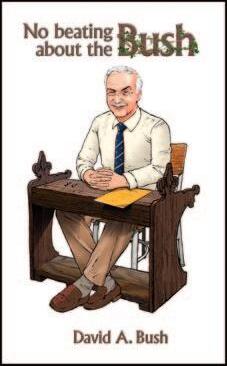
Some subscriber recipients of No Beating have expressed surprise and bafflement as to how their copies contained a personal message and my signature. No, I did not travel up to Huddersfield to sign the books; rather they travelled down to Porthcawl. They were dispatched by your ever-efficient secretary, Andrew Haigh and the next day saw a huge Palletways lorry blocking Chestnut Drive while some 180 copies were unloaded. Three days later, the process was
reversed. Since then, there have been numerous further orders and again I have tried to add a personal touch by emailing all the purchasers to express my thanks and to discover a little about them and how they learnt about the book’s existence. Facebook and Twitter take a bow.
It is no exaggeration to say that at times I have felt almost overwhelmed. The resultant replies have been often very lengthy and so complimentary.The praises
of King James’s School, my classes and Latin have been sung fortissimo. Particularly pleasing has been the response from my final Year 11 Latin group, my ‘Special Little Ones’, as I affectionately called them. They have been joined by others who left in ’96 and there is a very strong desire to have a Grand Reunion at the November Dinner.
From these emails there are so many sections that are worthy of being quoted that I could almost fill a special edition of The Almondburian. With the limited space
I have such fond memories of your Latin classes and find that so much of what I learnt stays with me now. The history of words fascinates me and I am forever boring my husband with stories of where words and expressions came from.
Emma Hall (née O’Donnell)Reading it was just brilliant. It brought back so many memories. Simple little incidents that were long since forgotten over the last 20+ years came right back to the front. Even spotted myself in there, being one of your bus trusties! I also enjoyed it from the teacher perspective, now 18 years in to my own teaching career!
Nicola Mott (née Beech)Latin was my favourite lesson. I loved how Latin seem to make sense of grammar in English and I went on to study English Language and Linguistics at York University. I’m now an editorial project manager for Collins (the education division of Harper Collins publishers) and I have often thought about how it was your Latin lessons that led me into this work. So thank you!
Katie
Galloway(née Smith)
It has sparked a very lively and nostalgic conversation on Facebook this evening, and as a consequence you may be hearing from a few of your final year Latin class.We have all decided we are going to attend the dinner in November, so I really hope you will be there! You honestly have no idea of the impact you had on me and so many others and KJS.
Sabrina AhmadI had the privilege of having you as my Latin teacher. I fell in love with the language and I took it for GCSE. I think you and Mr Taylor may have retired the year that we left. I couldn’t imagine the school without the two of you!
Vicki Capewell (née Simms)I'm in touch with a few people from school via Facebook and so your book has been talked about on there. Looking forward to having a read and a good reminisce! I loved that Latin class and still look back fondly ( as does my dad!).
Bernadette Thorp (née May)I received my copy of No Beating About the Bush on Christmas Eve. I started reading it on Boxing Day and finished it tonight, 30th December. I must tell you that I thoroughly enjoyed every page. In fact, I haven’t been as entertained and moved by a book in a long while.
Scott HusonI hope you remember me from the class of ’96 and your year 11 Latin class? I understand that there is a special OAS dinner next year, 25 years since we left KJS. I very much hope that the situation with COVID-19 improves dramatically so as to allow us to get together then.
Hannah Roper (née Parry)
I saw a post on the Facebook group by a former classmate saying how much he enjoyed your book. I immediately ordered it and commented on his post to say thanks, and that you were my favourite teacher! I am now a teacher myself - Head of Music at a boys’ school in south London - and often remember my Latin lessons at King James’s!
Katie Patel (née Golden)
I was pleased to hear on Zoom at the OAS AGM that your book has been a success. It was certainly an interesting read provoking many memories and I can only hope than you gained pleasure and satisfaction from writing it. Perhaps you will be inspired to write further on wildlife or bird watching.
Graeme Milnesat my disposal, I shall have to limit myself to the extracts above, which I hope will be of interest. And there are so many more! My apologies to all those whom there is not space to mention but you should all have had a grateful acknowledgement. However, I must beware hubris. Among all the plaudits and gratitude for going to King James’s, there will be some former pupils - a small minority I hope - who were not happy there and
who did not enjoy their Latin lessons. I did receive one highly critical email from a pupil from the grammar school days who recounted the throwing of board rubbers and bunches of keys. Today, such actions would probably mean dismissal but then it was common practice; a different ethos obtained. I have mentioned before how one teacher KO’d a pupil in assembly but it was all hushed up.
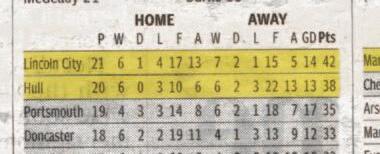
Very sadly, two subscribers to the book died before they received their copies. An amazing coincidence was that they were both at some time Old Almondburians’ AFC goalkeepers. Andrew ‘Fluff’ Firth played in the Old Crocks match in November 2008 during the 400th anniversary celebration. Indeed, I scored a goal against him and there exists a photo to prove it.The other death was even more poignant for me as it was that of Colin Graham. Colin was the OAS ’keeper when I joined the club in September 1961. A truly talented sportsman, Colin was always immaculately attired and a real gentleman. I clearly remember him saying after a match against Rawthorpe WMC, “Dave, I can tolerate all their spectators’ cursing and swearing but I do object to their p*****g in my nets.”
On reflection, being Colin, he may well have said ‘urinating’.
Obituaries for Andrew and Colin appear elsewhere in this issue.
So often the question is posed about how the Boys’ Grammar School and the present 11 to 16 Comprehensive compare. [It brings to mind that other question I was frequently asked, “Sir, did the Romans…?” I had to explain that Rome was, allegedly, founded in 753 BC and existed in some form until the fifth century AD, so it all depended on which era was being examined].
I suggest that it is impossible and unfair to attempt to draw comparisons between KJGS and KJS. We are not comparing like with like. The school is only a microcosm of society with the values, the attitudes, the goals of its time. It is so easy to talk of the Good Old Days. But were they? A very reliable source informs me that serious bullying was rife in the grammar school days and I am certain the teachers were never aware of it. And was that fierce competition encouraged on the sports field, swimming pool or classroom necessarily A Good Thing? I have mentioned before the adding up of all the exam marks and consequent positioning of each pupil in form order. Fine if you were first of 32 – but 32nd? No matter that you were in the top 20% – you had to be to pass the 11+, and today would have gained a first class honours degree! However, comparisons will always be made and an idea for a future edition occurred to me when I read an email from a comprehensive pupil whose father had been in the grammar school and another whose parents had been pupils in the early days of the comprehensive. It reminds me that I retired the year before the arrival at KJ of the grandson of a pupil I had taught in the early 60s.
Lincoln City
Time to finish now but not before reminding my dear readers that if ever I, a Lincolnshire lad, feel low in these Covid-ridden times, I have a quick look at the Football League Division One table.
Floreant Lindum et Schola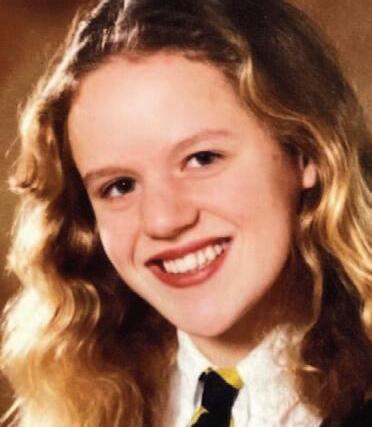
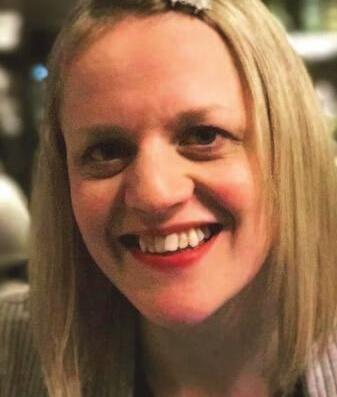
IT is a privilege to be asked to write about Mr Bush, yet I feel illequipped to do it justice after such a long time. It is 24 years since my final year 11 Latin lesson, but I cannot bring my self to refer to him as David, let alone Dave. He suggested a compromise of Mr B, but those taught by him will appreciate how flippant and insincere that sounds. Apart from our Latin lessons, in which we greeted him with ‘salve magister’, students at KJS learned very quickly that address ing him as anything other than ‘Mr Bush’ or ‘Sir’ was completely unacceptable. It would seem old habits die hard.
I had the pleasure of studying Latin with Mr Bush for four years; the final year of fering a brief glimpse of a totally different side to the man who was revered, but of ten feared. The seemingly omnipresent, strict disciplinarian who stalked the cor ridors – on the warpath for teenage miscreants lacking ties or wearing nose studs – never dropped the mask entirely, but there was a small amount of leniency afforded to his final year 11 Latin set. This makes him sound like a tyrant which is not the case at all, but he had a zero-tolerance approach to bad behaviour and, aside from Mr Taylor, was the only teacher in the school whose presence commanded instant, respectful silence. In the classroom, he delivered engaging lessons which were entertaining as much as they
were educational and, whilst he had the capacity to elicit a deep sense of personal pride, or completely floor you often with only a single word (Tremendous! or Dis
appointing!), he was always firm but fair.
Mr Bush insisted that we provide week ly evaluations of graded homework either to ex press delight at our suc cess, or to explain why our work was below par. Set work was marked out of 10 and it is fair to say that Mr Bush ex pected a 10. Full marks would be accompanied with comments such as, ‘Admirable’ and ‘Splen did’, enabling us to write a straightforward evaluation and breathe a sigh of relief until the next submission. A score of 9 or 8 would be followed respectively by comments such as, ‘Tenses?
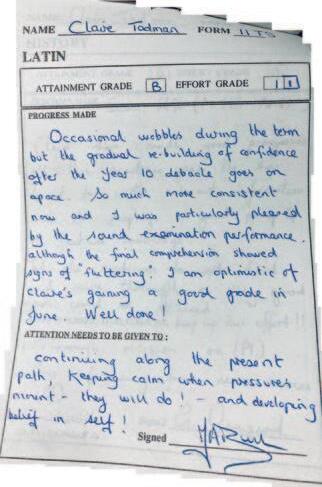
Cost you a 10!’ or ‘Mostly good, but the errors are serious ones.’ A mark of 7 from a student who was capable of better would be cause for concern and a ‘Not up to your usual standard’ assessment.
Mercifully, I never saw a 6, although I do recall a particularly embarrassing exam in which we were given a single sheet of A4 with a Latin passage to translate. I was relieved to see it was a passage I knew well and worked my way through it quickly, leaving ample time to double-check I had done a good job. On the way out of the exam room there was the usual chatter about how we had found the test and one of my friends said, “I’m so glad we revised the first passage, but I did a terrible job of the second one.” Cue heart in mouth moment. I had never thought to turn over the page.
It was not fear that Mr Bush used as a method to garner respect from the pupils he taught, but disappointment. You wanted to work hard for him because there was never any doubt that he would work hard for you. Handing in my Latin homework should have been a simple task after hours spent agonising over my answers, but it always provoked mixed emotions. The relief of getting it in on time was consistently overshadowed by the impending sense of doom I would feel about the work being returned. Happily, the fear of failure was completely unfounded, but the struggle was real.
I was not the strongest Latin student. Surrounded by natural linguists, I knew I would have to work harder than most to impress, but Mr Bush had a knack for recognising ability hidden beneath a lack of confidence and hard effort was always rewarded. He established a strong rapport with most of his pupils – often through a glimpse of his dry sense of humour, or by sharing anecdotes about misplaced apostrophes in the local rag – but I think he found it far easier to relate to those with superior academic intelligence.
English was – always has been – my favourite subject and, whilst my comprehension and creative writing skills are a credit to Mrs Bradford, Mrs Ferguson and
the guardian angel that was the late Mrs Dale, my knowledge of grammar was firmly established in my Latin lessons. Punctuation was taught in English, but it was Mr Bush’s comprehensive explanation of apostrophe usage that stayed with me, and his example I used to teach my own children.
Mr Bush repeatedly told us that Latin is not a dead language. When I enrolled on my degree course, my Latin GCSE was met with sneers and confusion by my peers, who quickly piped down when our very first lecture discussed the etymology of language and how most English words could be traced back to their Latin roots. A surprising number of students on the course struggled even to identify nouns and verbs and I couldn’t help but be amused that they would not have had such gaps in their knowledge if they had studied with Mr Bush.
He encouraged us to obtain etymological dictionaries and taught us about da-
tives, ablatives and the imperfect subjunctive. I don’t recall such concepts being touched upon in English lessons at GCSE, A-Level or degree level and, although an emphasis on grammar has returned to the curriculum in recent years, I often wonder how many students nowadays could offer definitions or examples of these without assistance from Google.
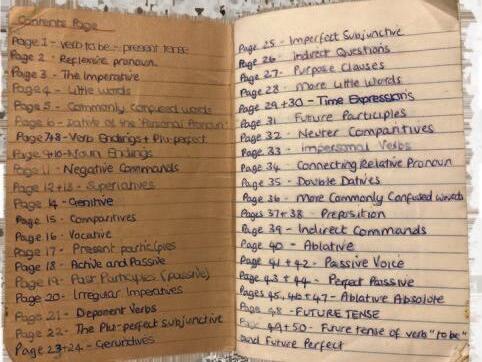
There are many teachers to whom I owe a debt of thanks, but few who gave me that lightbulb moment of satisfaction I experienced in Mr Bush’s class when I learned, and fully comprehended, a new grammatical concept. Applying it to Latin wasn’t always straightforward, but there was a great sense of accomplishment when the penny finally dropped. I imagine mathematicians feel much the same when they solve a difficult equation and I have no doubt that these lessons influenced many of my life choices.
It is probably not altogether surprising that I pursued my love of English after my time at KJS. Following A-Levels, I completed an English degree and a master’s degree in fiction writing. I have worked in various places, including Metro newspaper and The Mail on Sunday and I recently qualified as a proofreader with The Publishing Training Centre.
I have very fond memories of my Latin lessons and I suspect KJS is a very different place without Mr Bush. I wish him nil nisi optimum! n
DAVE Bush’s time at the School and mine overlapped by only one year, and he never appeared in front of any of my classes. I was in Science Sixth, at a time when there was no opportunity of mixing science and the arts, but I do remember Dave at a distance as a very young member of staff. By the time he reached his final year, the School had clearly changed in many ways, not just physically, but fundamentally in that there was no longer a sixth form, there were girls, the pupils were no longer exclusively from the top ability range (and there were many more of them) and the curriculum could hardly be described as grammarbased. But I still have fond memories of
my time there, and these were re-awakened as I read the book.
It contained numerous references to teachers I remember, the well-loved Jack Taylor being foremost. I have by now forgiven him for taking away a couple of marks from a mock exam in punishment for an alleged lack of respect when I cheekily wrote “could be” as part of an answer. Kenny Ireland was another who attracted mockery for his accent – we loved to echo “tomorrow” when he announced football fixtures in Friday’s assembly. Only after Harry Taylor had left the gym, of course.
I now have to fast-forward to 1979. After school, I went to Leeds University to study chemistry and joined the fam-
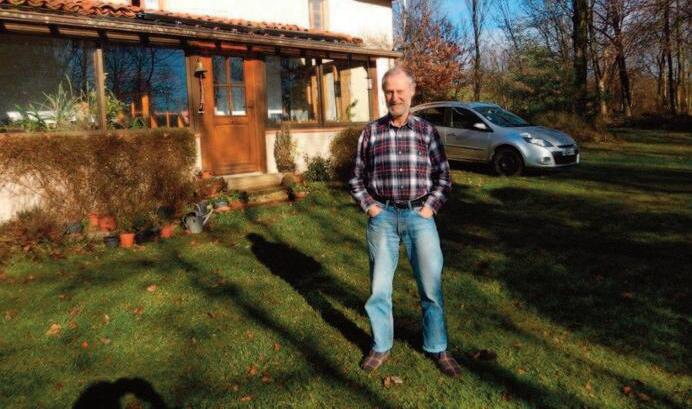
ily wool-textile company. Like most others in the town, international conditions caused its closure in 1979 and I found myself unemployed with responsibilities including two small boys as well as a mortgage. I needed to find work.
Several of my friends were teachers, and they all thought I ought to try teaching. I had my chemistry degree, and there was a national campaign at the time to recruit science teachers. I went for an interview at Holly Bank, and they made it pretty clear they wouldn’t let me leave without signing up for the one-year training course for Further Education. It was nice to feel wanted again, not just by a life insurance company looking for a salesman.
So a year later, I was lucky to get a job at Honley High School, recently having become a comprehensive but still having the reputation locally of being ‘Honley Grammar’. It had a sixth form, which gave me the promise of A-level Chemistry teaching after completing my probationary period.
No beating about the Bush took me back in so much detail to the 13 years I spent at Honley – not that I had carried responsibilities at the level of Dave Bush’s later years, though I did progress to taking eventually some pastoral responsibilities in lower school. I also was surprised, only two years into my own career, to be asked to supervise some student teachers in the science department, one of whom was clearly not des-
tined to stand in front of a class demonstrating an experiment.
The local authority’s policy at that time in the early 1990s was to offer teachers reaching their 50th birthday the chance of taking early retirement (‘in the interests of the efficient running of the service’!).
I had been having increasing difficulty hearing the pupils’ responses to my questions for some time due to hearing loss probably caused by exposure to noise in the weaving shed; I wore hearing aids, which didn’t solve the problem. I was also becoming more and more disenchanted with the introduction of the National Curriculum, which we dinosaurs in the science department saw as ‘dumbing down’ and a lowering of the standards to get better exam results. I was getting a bit cynical.
This had nothing to do with the children – they were the same, some good, some bad. The good groups continued to give me a lot of pleasure and satisfaction; the bad groups were to be tolerated as the price every teacher had to pay for the good groups. The timetables were very carefully worked out to give each teacher a mix of good and less good, and it wasn’t always to do with the level of achievement of any particular group.
The net effect of all this was that I was offered retirement on medical grounds. Fortunately we had for some time had a plan to make a new life for ourselves in France, and had already bought an old ruin near the Pyrenees. So we hurried -
No beating about the Bush took me back to the 13 years I spent at Honley
ly put the house on the market, and left immediately to start setting up in Boudrac, about 75 miles south-west of Toulouse. I was therefore spared the long goodbyes, which I always find difficult, though I did write and record a song to be played at the last staff social of the year, where traditionally a recording of songs, written and sung by staff members as good-byes to all leaving staff, was played. I still sing with a choir down here, though not for a year since the pandemic.
I had intended to keep a journal of my new life in France, but though I started it, I lacked the discipline to keep it up. However, I had been a long-serving player with Slaithwaite Phil, which produced an occasional magazine to which I contributed stories of our adoption of – and by –the local people.
Having spent four years studying Latin with Jim Toomey, as well as my English
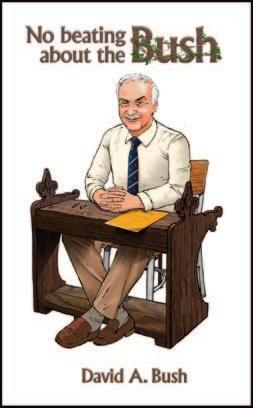
Language training and my love of French, I have a sound understanding of grammar. I must confess that I get irritated when people think that the presence of someone in addition to oneself necessitates the use of ‘I’ as an indirect pronoun (eg “He gave apples to my friend and I”); also the incorrect use of gender-neutral plural pronouns to avoid writing ‘his or hers’. I well remember an occasion at Honley when I was criticised by a member of the English department for correcting the English of my pupils’ homework. Apparently, I was ‘discouraging their right to free self - expression’! I shall continue to campaign in the face of accusations of arrogance, being a dinosaur, etc.
I still occasionally write complaints to the Weekly Guardian and New Scientist, to both of which I subscribe to keep me abreast of life outside deepest Haute Garonne.
Price: £15.00 + pp
(UK: £3.00; Mainland Europe: £9.50; Rest of world: £17.50)
248 pages
Hard-back
234 x 156 mm
ISBN 978 0 9557314 2 6
Available online: www.oas.org.uk
For much of the past year, mainland Europe largely closed its doors to holiday visitors. Many blamed Covid-19, but after seven successive years of visits from John Aspinall and his intrepid OAS colleagues we wonder if other factors were perhaps at play.
WE had booked to go to Malta in May this year, but, in common with millions of others, our trip was cancelled because of Covid19. The other downside (from our selfish point of view) was that we have not been able to attend the King’s Head for our regular soirées. However, in June, Mike Gibson came up with the idea that we should attempt to hold a virtual meeting via Zoom
on the due date of our arrival in Malta. It was also suggested we should raise a glass to our ‘virtual’ holiday. Yes, the older you get…
The holiday should have started on Wednesday, 13th May 2020, so we convened our first meeting on that date and it was very successful. We've continued with weekly meetings since and have covered a wide range of subjects, as you can imagine,
Form 2A in 1957, back row l to r: Chris Firth, Peter Fisher, Geoff Butters, John Butterworth, John Aspinall, Roger Kitson, John Bateson, Barry Hepworth, Alan Biltcliffe, Stuart Ainley, Roger Barrow.
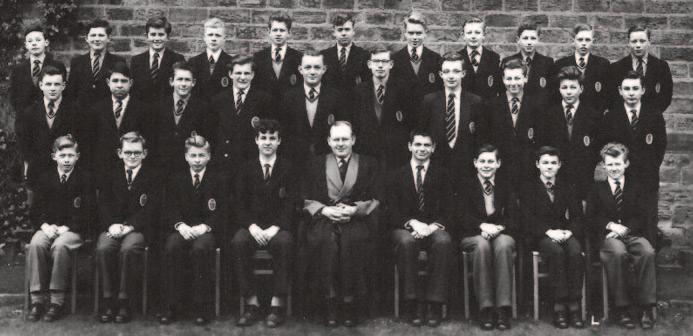
Middle row: William Gurney, Simon Barrett, Hedley Atkinson, Robert Ingham, John Halstead, Peter Hopkinson, Mike Hellawell, Gary Hirst,Terry Higginbotham, Peter Hoyle.
Front row: Roger Furniss, Richard Fitzimmons, Mike Gibson, Bruce Adamson, Dennis Hockley (form master), Albert?, David Flower, Allan Danks, Eddie Ashfield. The original group (ringed) were joined by John Linton (2 alpha) and Colin Ainley, a friend of Mike Hellawell.

including previous holidays. So I thought I would take a leaf out of the books of the BBC, ITV, Sky Sports, and others, and indulge myself in re-visiting some of our excursions and offering a bit of background to the reason we decided to go on these trips.
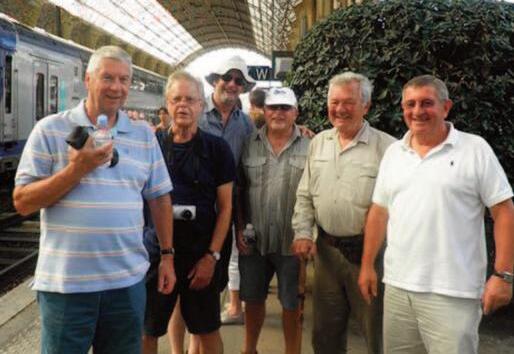
It all started back in 1996 when I received a phone call from Roger Morgan asking me if I would like to join him and other former pupils from our year to attend the OAS Dinner later that year at the McAlpine Stadium. Roger explained that it was to be a special dinner on the occasion of the retirement of Mr David Bush and Mr Jack Taylor. The particular significance in our case was that those two gentlemen were the last of the staff who taught at the School when we were there. I didn’t need much persuasion.
The great day arrived and I met Roger, Michael Hellawell, Gary Hirst and Peter Fisher in the bar as arranged. Roger had done a good job. I think the year of ’56 took two tables of ten. It is hard to believe that I hadn’t seen most of them since the 60s: Hedley Atkinson, Michael Gibson, Geoff Butters, Michael Bateson, Richard Fitzsimmons, Peter Tracey, Robin Prescott, and more. We had a brilliant evening.
The speeches came and went, nostalgia prevailed. As I recall, Atkinson, Tracey, and Aspinall shared a taxi to our
separate abodes in the early hours of the morning. What a night!
After attending the dinner for several years, a few of us decided we ought to get together more often for a pint or two, so we started going to the King's Head every couple of months. By 2012 about eight of us were in regular contact, and the notion of going on holiday took its first formative steps.This was to be on the 50th anniversary of the school trip to Paramé, near St Malo in northern France.
The first mention of Paramé was actually in an email in 2010 from Mike Gibson when he sort of apologised for not going to the OAS Dinner that year, but mentioned he was keen to re-visit Paramé sometime. According to my ‘search’ button, it was another 54 emails later and a long period of wondering who was going to join us, it was finally settled by the end of April, 2012. The intrepid group would be Peter Fisher, Mike Gibson, Mike ‘Tweeny’ Hellawell, John Linton, and myself; we were also joined as an ‘honorary Almondburian’ by Colin Ainley
The meal progressed very well; all in high spirits, full of bon ami. So much so, that we decided to treat the rest of the diners to a ‘sing song’, Class of ’61 style.We must have been good, because a guy came towards us waving, or brandishing a part bottle of red wine. Being a coward, I pointed down the table towards Colin and said “He’s the one who drinks red wine”. Our fellow diner congratulated us on the entertainment.
There are street performers, stalls selling all sorts of memorabilia, plenty of cafes and restaurants - and pick-pockets.We were to experience them all. La Rambla is also the most expensive place to drink and we paid €12 for a litre of lager.We only had one drink there each. Mike H had warned us not to choose a place which had blue upholstered chairs and tables.
A man decided to put his cheese and ham sandwich in the toaster, which made a mess. When confronted by one of our team, he became abusive and told us that this is what they do in Italy and if you don’t like it…
Two of the three who went to Florence were asked to leave a pub there for complaining about the beer. I wasn’t there so I cannot possibly comment about two Old Almondburians in their seventies being ejected from a pub, even if the beer was flat.
The two waiters on duty were close to our
age and should have retired when we did. We gave them various nicknames which grew more insulting as the evening went on. Our two wine experts asked for a wine menu. The dialogue went something like:
“Could we have a wine menu please?”

“Not possible”.
“Do you have Rioja?”
“No, we only have red wine or white wine”.
“We’ll have a glass each of the red wine please”.
So he brought a bottle of Rioja and two glasses.
One of the restaurants, on our second visit, presented our wine tasters a challenge when we were offered a glass each of free cava.Their taste buds were up to it though and they proceeded to order their preferred wine with aplomb. One of our lot wasn’ t too stylish when he was caught removing ice from his large, goblet-style glass. When asked why he was doing it he calmly replied “To make room for more gin.”
The coffee machine had a mind of its own, inconsistent in its delivery of a cup of coffee. It must have been deaf as well, or maybe it didn’t understand English. But the food was good.
We learned, quite quickly, that the scooters have the right of way on the pavements, and one’s chance of survival is enhanced by one’s acceptance of the situation. Zebra crossings are merely an option for the motorist: they can stop if they want to, or ignore it, depending on how they feel.
who went to Royds Hall but was a primary school pal of Mike Helliwell and Mike Gibson.
The trip went off well, though not without the occasional hiccup; I remember that one evening we selected a tavern worthy of our custom and were ushered to a table by a pretty, but rather nervous, waitress. We had a few drinks and ate well, although we were possibly a little too adventurous by deciding to sample the local ales. One of the drinks was, well, awful. Mike Helliwell back-heeled it to Mike Gibson by saying something like ‘let’s share’ and Mike Gibson in turn passed it to me saying something a bit more to the point. It looked like watery blackcurrant juice, and tasted as though it had been laced with brown sauce.
Undaunted, we all enjoyed the trip so much that we were soon planning future outings. In successive years we visited Barcelona (2013), Nice (2014), Malaga (2015), Viareggio (2016), Majorca (2017), Alicante (2018) and Torre el Greco (2019).
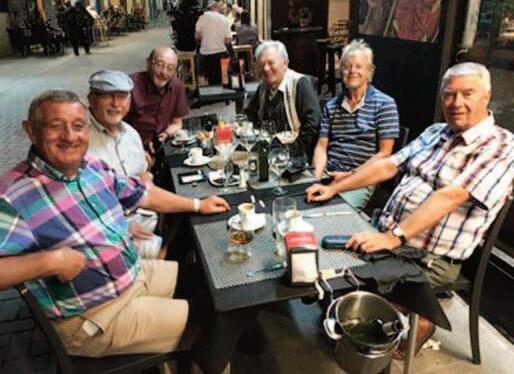
Having been deprived of our 2020, what next?
During our frequent Zoom meetings, the subject of where to go in 2021 occurred regularly. We all agreed that we would still choose Malta if the Covid situation came under control to the extent that gave us the confidence to book. But what if…?
Quite a few suggestions were forthcoming, but possibly the main contenders for a ‘staycation’ were the Isle of Man and the Isle of Wight. We have history with the former: Hellawell, Linton, Ainley and myself went for two weeks when we were eighteen in 1963, quite an adventure at the time. The Great Train Robbery occurred while we were there so we definitely weren’t involved. Things were a bit different then: pounds, shillings and pence; no such thing as bank cards! If you spent up, tough; age limit in pubs was 21 (but we managed) and we had a great time. I remember travelling by train to Manchester en route to catch the ferry from Liverpool, and the West Indies cricket squad were on the same train. Quite a squad, including Garry Sobers, Frank Worrell,Wes Hall, and Charlie Griffith. They were picking horses and seemed in good spirits – not surprising as they won the Test series by 3-1!
At the time of writing this piece, we hear that vaccines are almost with us, and could put an end to our misery, but who knows? n
LIFE is tough for those unfortunate enough to have inherited surnames with apostrophes, claims writer Simon O’Hagan in a recent newspaper article*.
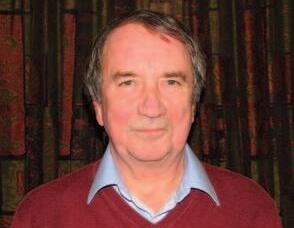
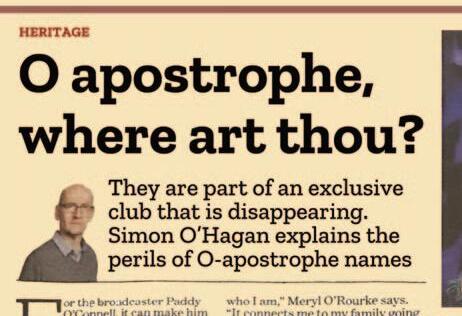
Warming to his theme, he instanced comic Meryl O’Rourke who complained that she had to change chemist as her usual one couldn’t handle the apostrophe. Author John O’Farrell struggled when he tried to transfer money into one of his children’s bank accounts. “The whole apostrophe thing wastes a lot of time,” he grumbles. “The apostrophe may not be a letter but it’s there on the keyboard.”
A further potential problem arises with names that seem to have an apostrophe missing – but don’t. Step forward former US President Barack Obama, who was not impressed on a visit to Ireland to be re-named Barack O’Bama.
We wondered if this was all a major issue for members of the Old Almondburians’ Society, only to find that we only have a single example in our ranks: none other than our highly respected former Deputy Head Patrick O’Brien. He reports that prior to home computers, his main problem with his name was that it was often spelt with an ‘a’ rather than an ‘e’. Students at school spelt it both ways, sometimes ‘O'Bryan’ and even ‘O'Brain’. In all four versions the apostrophe was deemed optional.
Patrick soon realised that computers had an aversion to the apostrophe, but it did not take long for him to get used to spelling his name without the apostrophe and with a lower case ‘b’.
“Fortunately, predictive text is so common now that I rarely have to give it a thought,” says Patrick (right).
*Spotter: James Clayton
Send your sightings of errant apostrophes to us at apostrophes@oas.org.uk. We’ll publish the best.
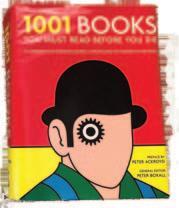
It has been a year most of us would like to forget, but a combination of crossword puzzles and a treasured copy of David Copperfield ensured our writer’s survival

JOHN Wayne was reckoned to have said “Don’t stand when you can sit, don’t sit when you can lie down” as being a recipe for longevity. I am a disciple of that philosophy, in that I follow that advice whenever I can. A naturally inactive, anti-social person, I am finding self-isolation less difficult than some might. My father once said that he wished he had been a lighthouse keeper, so maybe it’s in the genes. There was a popular song which you may remember: I’m busy doing nothing, working the whole day through, trying to find lots of things not to do. I brought a crossword book back from Tenerife before Christmas, which someone had left behind. 500 puzzles to get through. I am reaching the halfway stage. Another volume I have to hand is 1001 books you must read before you die. I haven’t started on that yet but I have worked out that if I read two a week then I would be nearly
94 on completion, so it is quite a challenge.
One challenge to which I have risen –and which has given me much satisfaction – is reading David Copperfield. Nothing unusual there, one might think, but this was no ordinary achievement. The book was bought for me on my 12th birthday by my elder sister Mary, a Longley Hall pupil. My previous reading at that time was Biggles-based. It has, to my shame, been unread until this time. I have kept it on bookshelves wherever we have moved to, looking at the 923 pages with some guilt and thinking ‘one of these days…’
Well, one of these days arrived and I laid the ghost. What a wonderful read, with East Anglian connections making it more meaningful as we live within a short distance of some of the locations involved. Sadly, my sister died some twenty years ago but I think she would be pleased that I had finally made the effort. n
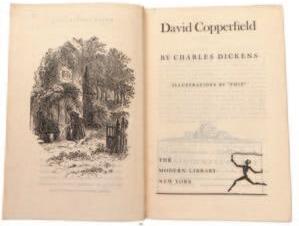
One of the Old Almondburian Society’s most senior members looks back on his career in weather and space science in conversation with RICHARD TEALE
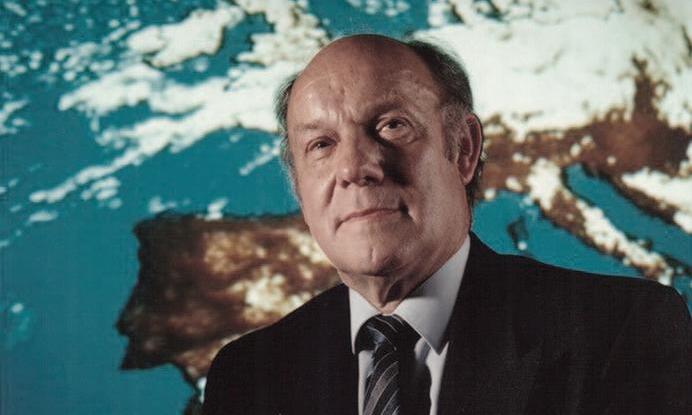
Iam the middle of three Goldsmith brothers who attended King James’s Grammar School (then more commonly known as Almondbury Grammar School) over a period of almost 20 years from 1935 to 1954). My older brother, Bob, is now 96 and lives in Scarborough but sadly suffers from dementia. My younger brother, Carl, passed away 10 years ago.
I consider myself very fit, other than a minor heart condition, but find the present lockdown situation with Covid makes
life boring – I can’t go down to my local pub for a pint! The Government now seem to be following the right course in keeping peopIe at home, and I’ve had my first vaccine injection, one advantage of my age!
Back in my school days, our family lived in Farfield Road, Almondbury. It was a 1930s council estate and we lived in a twobedroom house until my younger brother was born and we then moved into a three-bedroom house on the same road. My father worked for the Electricity Board, where he was a foreman in the boil-
er room and a shop steward.
Primary education for myself and two brothers was at Almondbury Board School where, on passing the 11 plus examination, we became eligible for Almondbury Grammar School. My parents made many sacrifices to send three boys there; many parents on the estate could not afford to send their children. At that time, there were school fees of about a guinea a term to pay and we had to buy our own books. I suppose I was fortunate, in one respect, that my years at school coincided with the Second World War, when rationing meant that strict uniform requirements were relaxed.
In my time at school, the 1939 extension including classrooms, laboratories and gymnasium was relatively new, and the head-teacher, Taylor Dyson, lived in the school house. The subjects I enjoyed most were those presented by enthusiastic teachers, in particular, I remember John Hopton (maths). I was keen on cricket and football but I took on a Saturday morning milk delivery job for a local farmer and was not able to play for the school. I was good enough at football to be sent, along with my class-mate Jeff Taylor, for a trial with Huddersfield Town Juniors. Nothing came of it for me, but Jeff went on to play centre-forward for the Town first team between 1949 and 51. Jeff’s younger brother, Ken, played centre-half for Town between 1953 and 65 and played cricket for
Yorkshire and England. At the end of my fifth year at school I was aware that my education was a significant cost to my parents and I decided to seek employment. I took on a junior position at the Meteorological Office and was sent to London to learn how to take weather observations and plot charts, but I wasn’t allowed to analyse them. I was posted to RAF Finningley near Doncaster where I worked evenings and weekends to enable me to study during the day for A levels at Doncaster Tech. I was promoted to a more senior position but then was called up for National Service in the RAF and given a junior meteorological position again! I was given the task of sending up weather balloons and was posted to various parts of the country. After my 18 months in the RAF, I took up a position at RAE Farnborough in the meteorological research flight where between 1951 and 54 I did weather investigations, flying in Mosquito, Canberra, Hastings and Avro Ashton aircraft.
It was at this time (when I was 22) that I married my first wife and over following years we had four children: Philipa, Penny, Thomas and Guy.
In 1954 I won a Civil Service scholarship to Oxford University (Pembroke College) to study physics – I followed my older brother, Bob, to Oxford; he studied at St Catherine’s. A condition of my scholarship was that I worked during vacations
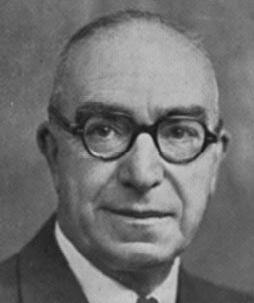
at a government scientific organisation and I chose the nearby Harwell Atomic Research Establishment. Success in problem solving at Harwell persuaded them to offer me a position as a consultant and I took permanent employment with them on completion of my degree in 1957 and stayed until 1968, when I returned to the Meteorological Office in Bracknell. Sir John Mason had been appointed Director General there and was setting up research groups and recruiting specialists to head them up. I was appointed as an Assistant Director leading a team studying cloud physics. I subsequently became Research Director supervising all research.
At that time, I was also secretary then president of the International Commission on Atmospheric Chemistry and Global Pollution. We put an emphasis on studying the oceans more, they were the key to climate change that we now think of as a modern phenomenon.
After the retirement of Sir John Mason in 1985, I took up the position of Director of Microgravity and Earth Observations at the European Space Agency in Paris. I
wanted to put more emphasis on them looking inwards from space rather than outwards from earth and I was responsible for the Meteosat Series and other earth observation satellites.We launched them from French Guiana in South America. I had staff reporting to me from Holland, Germany and Italy, and of course, France and was constantly on the move, coordinating European and global financial and scientific support.
I retired from the Space Agency in 1993 and decided one of my main tasks at that time would be the restoration of our house in Bracknell, which had been neglected during my globe-trotting days. I had moved there in 1969 with my first wife who died in 1983.The house had been built in 1922 as an extension of a Tudor house built in 1580 that I also owned. I lovingly restored it and our work was much appreciated by the new owners when I, together with my second wife whom I married in 1990, moved out in 2012.
I am also a vintage car enthusiast and inherited an Aero (Czechoslovakian) car, in bits, from a friend. I discovered that it had
Difficulty: tough
Each row, column and 3 x 3 box must contain the digits 1 to 9
been owned and used in wartime London by Czech president, Edvard Benes. I restored it to a magnificent standard and it is now in the Czech National Museum in Prague. Earlier in my life when my son, Tom, was a teenager and showed an interest in old cars, we had purchased a 1935 Lanchester 10 to restore together. He still has it and it has been used many times for transport at family weddings.
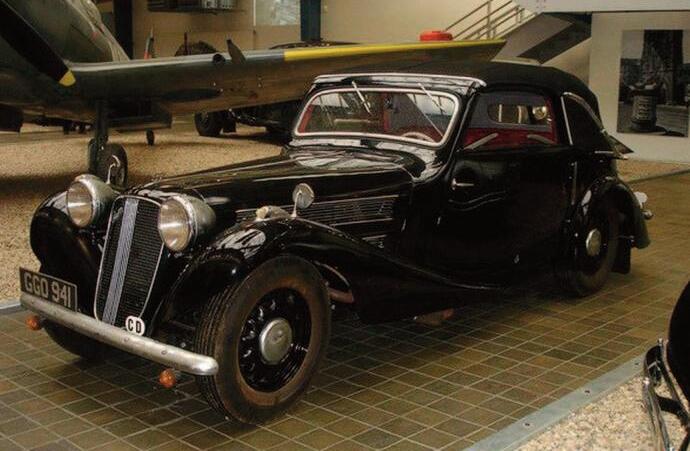
I still feel a strong connection to Yorkshire and I am a life-long supporter of Huddersfield Town. My father used to take me as a boy and I was at Wembley Stadium in 2017 when they won the championship play-off match with Reading and secured a place in the Premier League. Also, I was at the Town Stadium in 2008 for the School’s 400-year anniversary dinner and celebrations, and I took my brother, Bob, along too.
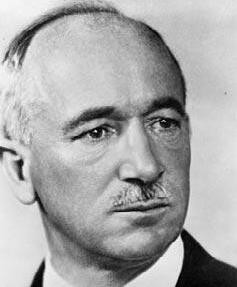
We moved out of Bracknell to a retirement complex in Somerset, but we didn’t fit in with the old people there. So, in 2014, we moved on to Sidmouth, Devon. We had never been here before but we found a new build retirement development of 12 houses within walking distance of the High Street, the seafront and a lovely old pub and we are very happy here.
The only drawback is we are a long way from Yorkshire.
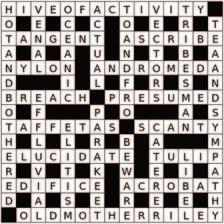
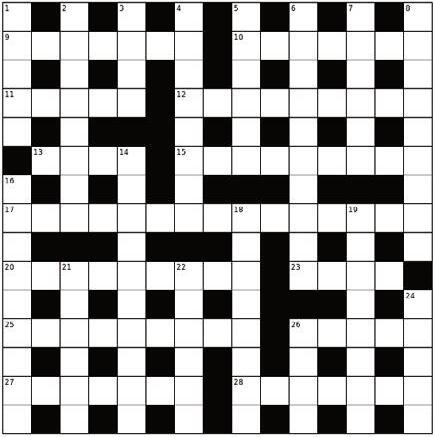
Entries to the Editor (address/email: back cover) by 31st May 2021. Prize: 12 months’ free OAS membership
l The winner of Crossword by Hérisson (November 2020) was Timothy Cliffe
9. Middle Eastern P.M. once lost his head. (7)
10. Legume lad noticed according to Spooner. (7)
11. Corroded game pen. (5)
12. Jones, maybe, like a lad? No, descriptive of a girl like a lad! (9)
13. Gift determination. (4)
15. Worm catcher. (5,4)
17. One of twelve dozen catfish – I go berserk. (4,2,3,6)
20. Idols clue – not about to move. (4,5)
23. Stage favourites retreating. (4)
25. 17 – island grain. (9)
26. It’s wet artist revised. (5)
27. 17 – tailless arachnid. (7)
28. Communication record is let loose. (7)
DOWN
1. 17 – 51 supporter. (5)
2. Doctor, doctor! ’E sings for “Band Aid”, maybe. (8)
3. Stand up to make a god. Not I! (4)
4. Turbulent stream. It results in abuse. (8)
5. Part of Treviso. Merely the same but different. (6)
6. Means the same as you, sonny. Manuscript shredded. (10)
7. 17 – sparkler in one. (6)
8. Criminal place to find a ship. (2,3,4)
14. Make haste and appear slick. (4,6)
16. Cut off and cast Rosie adrift. (9)
18. Finish irritation, but put in harm’s way. (8)
19. Study bird in the outskirts of Ilkley to get name. (8)
21. Officer cut short or gaoler. (6)
22. Observe – see lock down oddly ignored. (4,2)
24. 17 – office employees don’t keep secret. (5)
26. Woman with that man creates caprice. (4)
The Almondburian congratulates Nigel Priestley (1963-70) and Christopher Mann (1958-66) and asks them about their recent Awards
Almondburian. Many congratulations on behalf of the Old Almondburians’ Society on your Honour.What is the full citation?
Nigel Priestley. The MBE is for ‘Services to Children and Families’ and it arises from the fact that most of my work for many years has been in this field. I am of course absolutely delighted.
A. We’ll talk more about the award a little later, but let’s begin with how it all started.Are you from Huddersfield?
NP. No. I was born in Huddersfield Road, Mossley which is near Oldham. My father was from Bradford and he went into textiles at the age of 14. After war service, he took a textiles degree at night school and worked in a mill in Mossley. He then joined Shell Chemicals and we moved to Broadgate Crescent, Almondbury in 1959. I’ve lived in Huddersfield ever since.
A. Did you go to primary school in Mossley?
NP. Yes, I went to Livingstone Primary School in Mossley followed by Lowerhouses Junior School. I was one of only four out of 25 pupils who passed their 11-plus, and I tell my children how that selection process betrayed many able youngsters who deserved a grammar school education.
A. You joined King James’s Grammar School in September 1963. Do you remember much about your early days there?
NP. Of course, I remember getting the trol-
ley bus up Somerset Road each day! And for some reason short trousers were compulsory in the first year, I think, which wasn’t much fun in winter.
A.Were you a high flier at School?
NP. Not really, but it gave me the opportunity in life which is the main thing. Looking back, I do think that if you were good at KJGS you received lots of encouragement, but if you were more middle-of-the-road you didn’t get as much attention. However, I enjoyed a lot of things at KJGS, like Scouts, Five-a-side football, Jacobean Society and so on.
A. And the teachers?
NP. Lots of memories! To mention just a few, there was Jack Taylor (Biology): “I haven’t got a pen, Sir”. “Use blood!”. Dave Bush (Latin) would occasionally hurl a blackboard rubber at your head. Walter Haigh (Maths) would sneak outside for a quick smoke. Mr Hindley (History) seemed to mark homework on the basis of its length rather than its quality. And Ken Ireland (PE) would go out in his little Ford Anglia during cross country runs to check on who was smoking!
A. Did you get much career advice at school?
NP. Not really; in fact, I had no particular career in mind when it came to going to university. In the event, I went to Warwick which was one of the newer universities and
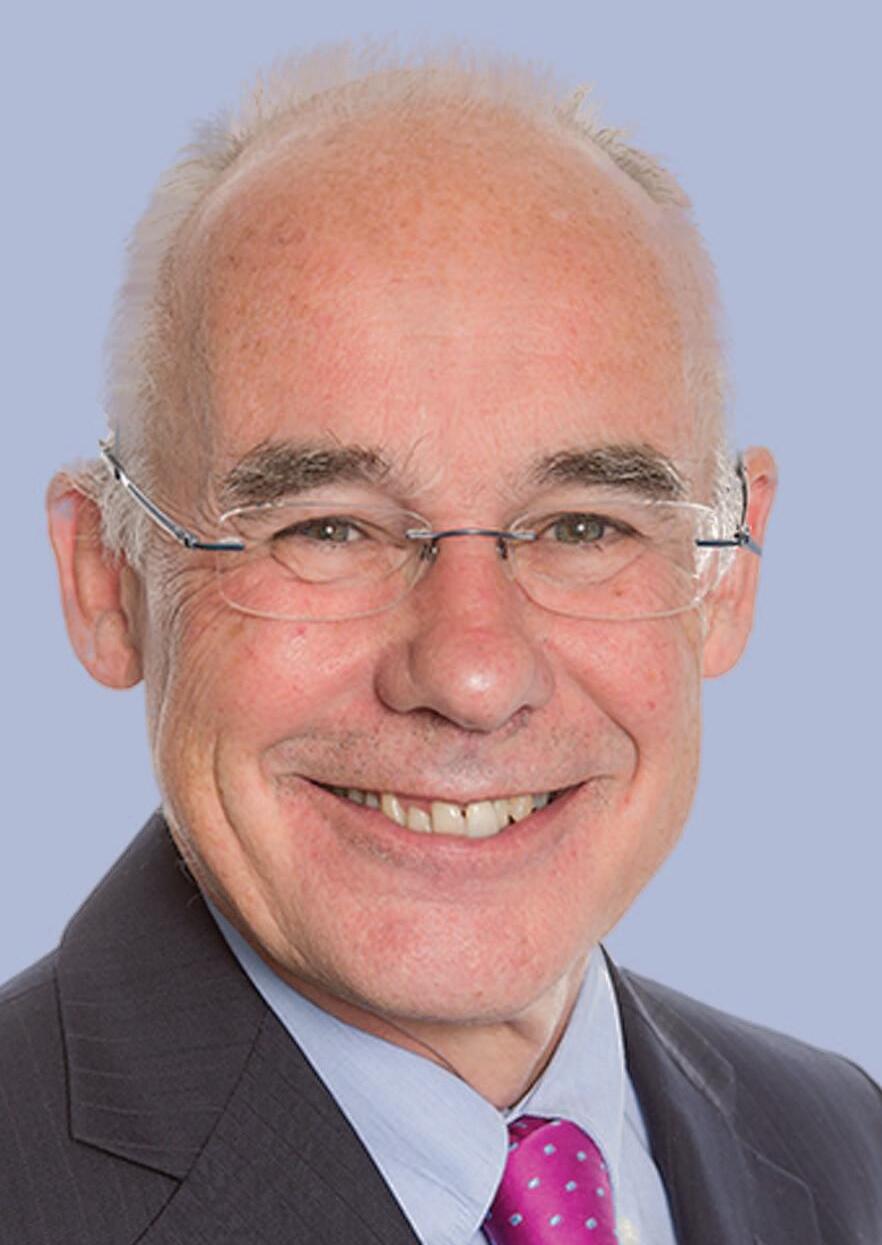
didn’t require such high grade ‘A’ Levels as the traditional universities. There I studied Law.
A. Did you enjoy your time there?
NP. Yes, it was a new type of law course based on the law in action rather than the history of law. It was just right for me. But it was a very lively time to be at university – the three-day week, the miners’ strike, demonstrations, ‘Maggie Thatcher milksnatcher’and all that. It was quite an eye opener for me as an 18-year old grammar school boy.
A. Having taken your degree, what was the next step?
NP. My first employment was with Eaton Smith and Downey, one of the largest conveyancing and probate firms in Huddersfield at that time. At the age of 26 I joined Old Almondburian David Rhodes (196269) at Ridley and Hall, one of the smallest firms.They did conveyancing and probate. I came to start the court work there but found myself doing everything – crime, divorce, personal injury and so on – but now I’m a specialist. I’ve now been there for 42 years and am a Senior Partner.
A. How large is Ridley & Hall now?
NP. We have 70 staff and we have offices in Huddersfield, Leeds and South Elmsall. Although we’re firmly based in Yorkshire, we now have a national reputation, covering property, wills and probate, child care, public law and matrimonial. In 2019, we were awarded Yorkshire Small Law Firm of the Year at theYorkshire Legal Awards.
A. Besides being a Senior Partner, what is your specialist role there?
NP. I am a child care and adoption specialist and a member of the Children’s Panel, regularly representing children and parents in care proceedings.
A. What sort of legal issues arise in your specialist field?
NP. That’s easiest to answer by way of an example. Since the tragic ‘Baby P’ case in 2007, when a 17-month-old London child died having suffered more than 50 injuries over an eight-month period despite being under the ‘care’ of childcare professionals, there has been a major tightening up of childcare regulations and an increased emphasis on ‘best practice’ in the whole field of fostering and kinship care. This has resulted in an exponential rise in care cases around the country – there’s now an 8,000 shortage of foster carers so Councils have turned to relatives, known as ‘kinship’ carers.
This led to my major involvement with Kirklees Council where I took the lead in successfully bringing Judicial Review proceedings on behalf of children placed with kinship carers. The Council was turning a
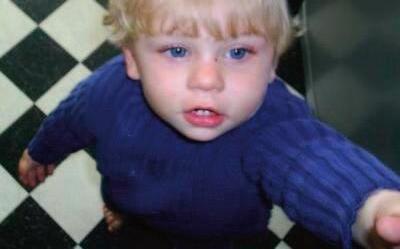
blind eye to its obligations with regard to foster parents and kinship carers, paying Special Guardians only two-thirds of the correct allowance.
A. You’re also involved in childcare activities abroad?
NP.Yes, in association with the Huddersfield Law Society I helped to set up a unique twinning link with the Uganda Law Society in 2002. We’ve sent out a team of four each year and trained over 1,000 lawyers. I’ve been over a dozen times to Africa since then. We’ve also been involved in schemes to place orphan children into extended foster care. I’ve also been to Paraguay for the Department of International Development to train lawyers and judges in child care there.
A. You earlier mentioned your run-in with Kirklees Council, which brings to mind another episode of more direct concern to the OAS a few years ago.
NP.Yes, this was the occasion in 1994 when Kirklees Council gave notice that they wanted to change the arrangements under which the OAS Cricket XI had long used the cricket field.
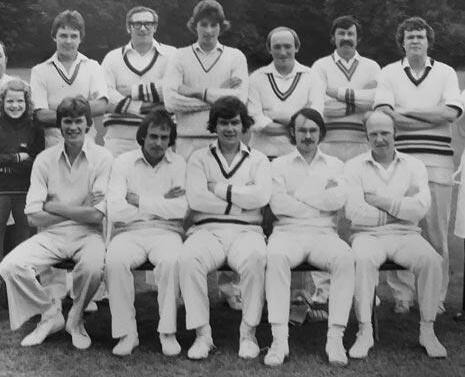
A.What was wrong with that?
NP. Only that it revealed that Kirkless were under the mistaken impression that they owned the land, which they did not. When
we looked into the situation further, it became clear that the field was actually owned by the ancient school trust which Kirklees had failed to administer properly for many years.
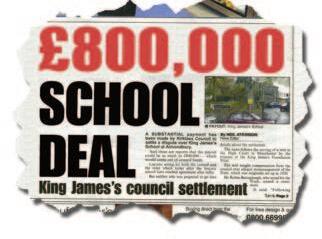
A. So what happened next?
NP. Our little team, led with enormous persistence by Graham Cliffe, consulted the Charity Commissioners and eventually we threatened legal action. The matter was finally resolved when Kirklees made a very significant out-of-court financial settlement. This led to the setting up of the present King James’s School Foundation to administer the ancient trusts.
A. What are your interests outside work?
NP. I continue to be interested in politics - I was a Meltham councillor for many years
I’m also a reader in our local church and I give what help I can to my wife Sue who runs an advice centre, food bank and charity shop.
A. Your MBE was awarded for services to Children and Family. Are you a family man yourself?
NP.Very much so!We have three daughters, all of whom still live locally. We also now have a grandson – so we understand from first hand experience the pressures of being grandparent carers! n
Almondburian Many congratulations on your Award. We understand that the Award is personally bestowed by HM The Queen?
Chris Mann That’s correct. The full name of the Award is ‘Member of the Royal Victorian Order’and it is the personal gift of the monarch in recognition of personal service to the Crown and to members of the monarch’s family. It was originally established by Queen Victoria in 1896.
A. In the case of your Award, was it in connection with any specific royal service?
CM. Yes, it was for services to Cumberland Lodge.
A. That’s somewhere in Cumberland?
CM. Oddly enough, no! It’s actually in Windsor Great Park and is a grade II listed country house built by an army captain called John Byfield in the 17th-century. It was originally known as Byfield House and then Windsor Lodge as it’s only a few
miles from Windsor. It became Cumberland Lodge when it was the residence of The Duke of Cumberland in the 1740s.
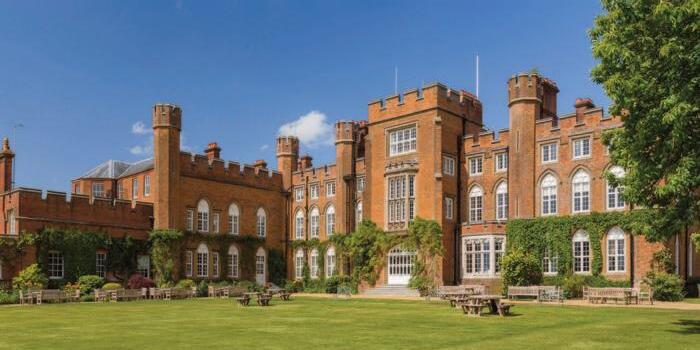
A. And what is its role today?
CM. When it became vacant in 1947 The King and Queen decided that it should become a charitable foundation dedicated to demonstrating that ‘good’ can triumph over ‘evil’.There was a belief after the War that many of the problems in Germany had resulted from the suppression of free speech. The object of the new foundation was to give young people between the ages of 18 and 25 the opportunity to discuss contemporary issues in a way that could lead to a betterment of society generally. I went there myself in the late 1960s when I was at King’s College, London reading History. I went with my mentor at the time, the great military historian Sir Michael Howard who was himself a trustee of Cumberland Lodge.
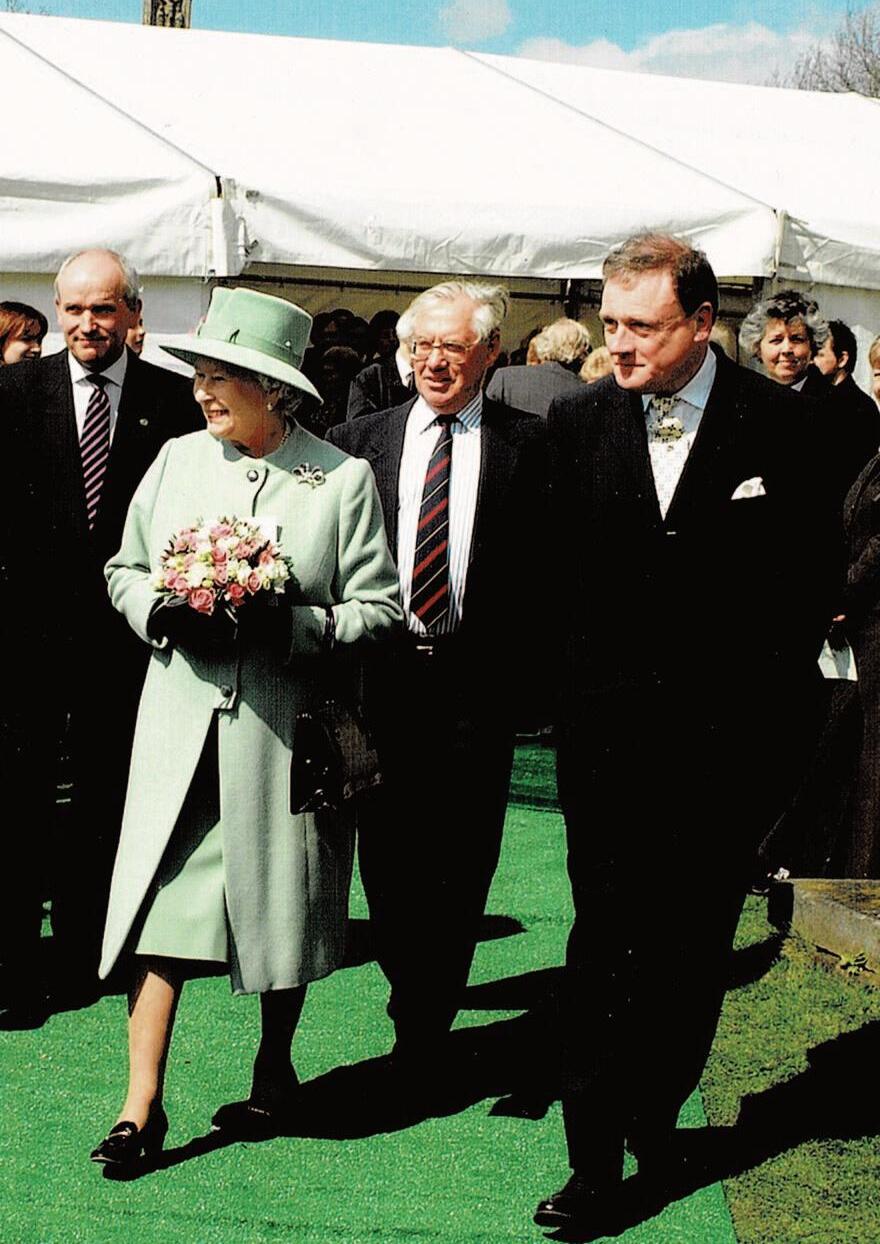
A. And then you became involved with Cumberland Lodge professionally?
CM. Yes, that was in 1971, so I’ve now been involved with the Lodge for 50 years.
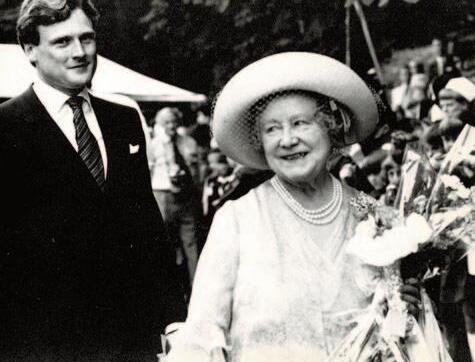
A.What exactly has been your role there?
CM. I had to manage certain capital projects or projects associated with the Lodge’s programme of activities, together with the associated funding. Some of these activities were initiated by the Lodge itself while others were organised by outside organisations like universities that wished to use the Lodge’s premises and facilities.
A. Are you still involved with Cumberland Lodge?

CM. Yes, but to a smaller extent now.You could say I’m semi-retired! But it’s been very rewarding work, and I’m deeply honoured that I have recently been made an Honorary Life Fellow of the Lodge.
A.What else is keeping you occupied these days?
CM. I continue to be very much involved with the College of Arms in London, which has been a corporate body since
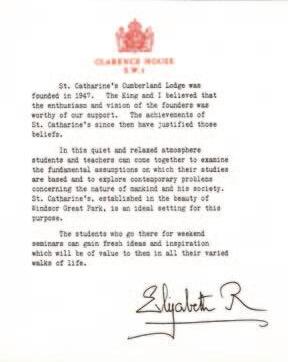
1484 when it was set up by Richard III in the City of London. It comprises 13 heralds appointed by the Sovereign who have delegated authority to act on behalf of the Crown in all matters of heraldry, the granting of new coats of arms, genealogical research and the recording of pedigrees. The College is also the official body responsible for matters relating to the flying of flags on land, and is very much involved in major ceremonial occasions.
A. What exactly is your role at the College?
CM. I am responsible for ensuring that the fabric is in good order and that there is adequate funding to maintain and improve the fabric. I should add that this is no mean task as it’s a seventeenth-century building in Queen Victoria Street. I’m also responsible for seeking funding for the conservation of the College’s unique working library which contains books and manuscripts pre-dating the Reformation.
A. Do you live in London?
CM. I have a small period gate-house in
Hertfordshire and a tiny former weaver’s cottage not far from our family home in Honley. I spend about 60% of my time in Hertfordshire, 30% in London and – sadly – only around 10% in Yorkshire.
A. Turning to your activities on behalf of the School and the Old Almondburians’ Society, it’s not surprising that these have usually been associated with the royal family and with fundraising generally.
CM. That’s right. I’m one of the Trustees of the King James’s School Foundation and I’ve been an active member of the OAS for many years.
A. And it’s not surprising that you have become our royalty contact man!
CM. Yes, I know most members of the royal family sufficiently to invite them along to an important event.
A. Most recently, of course, we remember the visit of The Duke of Gloucester and the Earl of Dartmouth in 2008 on the occasion of the School’s 400th anniversary.
CM. Yes, I got to know the Earl of Dartmouth through his mother the late Raine, Countess Spencer who, as Countess of Dartmouth, opened the major School extensions in 1963.
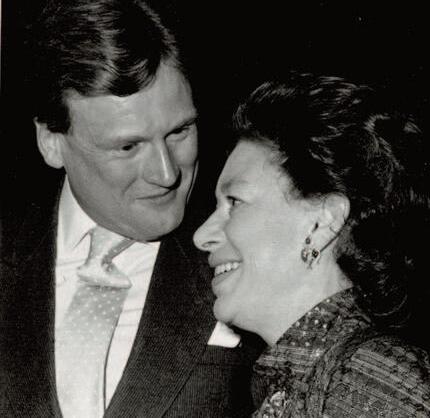
A. You were of course there on that occasion as a schoolboy, having joined King James’s Grammar School in 1958. What influenced your choice of school and what do you remember about your early days at the School?
CM. My father was rising high in the David Brown Corporation where there was a fellow manager by the name of Herbert Ashfield who attended the School in the 1920s. He also had a son there who had joined in 1956, so it is not surprising that he influenced my father in recommending King James’s Grammar School. When I joined the School myself I remember being overwhelmed by the beauty of the setting and by the School’s historic associations.
A. Did you have any brothers at the School?
CM. Not when I joined, but my younger brother Nicholas, also an OAS member, joined in 1962. He is a talented pianist and was music teacher at Bradford Grammar School for many years.
A.You soon started depicting historical characters in School drama productions.
CM. Inevitable, I suppose, in view of my love of history – but I had to work my way up! My debut was as Lady Anne in Richard III in 1960. Then, in 1961, I was a slave in Caesar and Cleopatra. In Ben Johnson’s The Alchemist in Spring 1964 I played quite a prominent part as Dapper, a lawyer’s clerk. Then I hit the big time: I played the Earl of Westmorland no less in Henry IV Pt 1 in Spring 1965 and the following year I was Lorenzo Querini in Fritz Hochwälder’s The Strong are Lonely.
A. Which teachers do you remember most vividly?
CM. Frank Anderson, of course; you never
dared say “No” to him which is why I was in so many of his plays; his co-producer at times was Albert Makinson. Other teachers
I remember very clearly were Jim Toomey, Francis Bareham, Fred Hudson and Harry Gledhill; in fact, I can see them all now!
A.Which House were you in?
CM. I was in Siddon and was actually Head of Siddon in my final year. I had stayed on for an extra year – nowadays it would be regarded as a gap year. I became an Associate of the London College of Music, but that was through external teaching rather than Harry Gledhill
A. Did music play a big part in your life in your schooldays?
CM. I did play the piano, but sadly, I never seem to have time to play nowadays though I do have a keyboard.
A. From King James’s, you went to university?
CM. Yes, in 1966 I gained a place at King’s College, London where I studied Modern History. I think Francis Bareham may have matured my interest in history while I was at school, though I think it was largely genetic.
A. Did you enjoy university life?
CM. I quite enjoyed it, though I was pretty studious and kept my head down most of the time. But I did play hockey and I joined several associations.
A. We know that you still don’t have a lot of spare time nowadays, but what are your relaxations away from work?
CM. I watch television, which I find very relaxing and it normally sends me to sleep! I do some DIY and have a large garden which I created in Hertfordshire and have to keep on top of. When I can, I enjoy travel. I also read a lot – biographies are my favourite.
A. Finally, when you look back on your days at KJGS and compare them with KJS today, what changes do you see?
CM. I think the School today offers, in a very different format, much the same opportunities that existed in my day. But the big difference nowadays is that everything is so technologically and digitally connected.
People often say that pupils are under much more pressure nowadays and teachers are in turn under pressure from Ofsted. I don’t really agree – it was much the same in my days. There were just the same pressures to do well in the classroom and on the sports field.
But I don’t think schools and teachers should push students all the time to get good results in the classroom. There’s much more to life than purely academic excellence. n
Parliament Square, London in 2007: Christopher Mann with The Prince of Wales
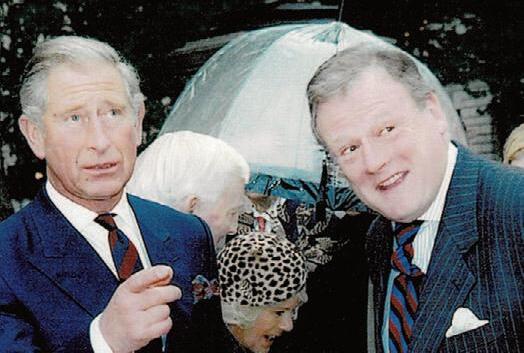
80 YEARS AGO
We remember an Almondburian who lost his life in one of the greatest naval battles of the Second World War
ON 31st May 1915, a nervous lad by the name of Owen Ellis Hulme joined the other 28 youngsters who were by now in their third term at Almondbury Grammar School. He didn’t have far to travel: he and his parents William and Edith Louisa lived a stones-throw away in a house in the grounds of Fenay Hall.
We have few details of his time at the School except that he was a talented allround sportsman who was a worthy recipient of the School’s greatest sporting honour: the Victor Ludorum. He left school on 26th July 1932 for teacher training at St John’s College, York, founded in 1841 and now York St John University.
War broke out in 1939 and Owen was conscripted for National Service in the Royal Navy as Able Seaman Hulme, service number P/JX 172637. His ship was HMS Hood
Ordered in 1916, HMS Hood was for 20 years the largest and fastest warship, pride of the British Navy. Long overdue for a refit at the outbreak ofWorldWar II, she was sent
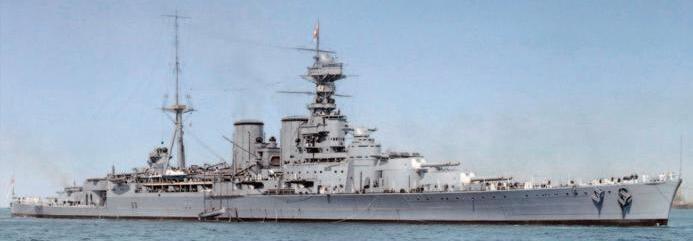
into action in May 1941 to intercept the German battleship Bismarck and the heavy cruiser Prinz Eugen, en route to attack allied convoys in the Atlantic. After a fierce battle, HMS Hood was struck by several German shells, exploded, and sank within three minutes with the loss of all but three of her crew of over 1,300 men. Sadly, one of those who went to his death was the 25-years-old ‘Paddy’ Hulme.
He is not forgotten. His name is recorded in Edward Akroyd’s memorial book in the ‘Big’ and on the tablet below on the walls of the War Memorial in Almondbury. In 1964, his relatives presented the Old Almondburians’ Society with a silver cup, to serve as an athletics prize at the School.
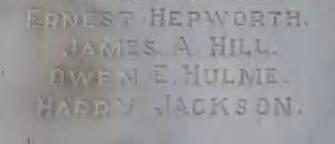
OLD SUNNYBANK was a familiar view for me from age 11 years, as we lived nearby. It was therefore one of my earliest drawings published in the local newspaper, the Halifax Courier & Guardian.
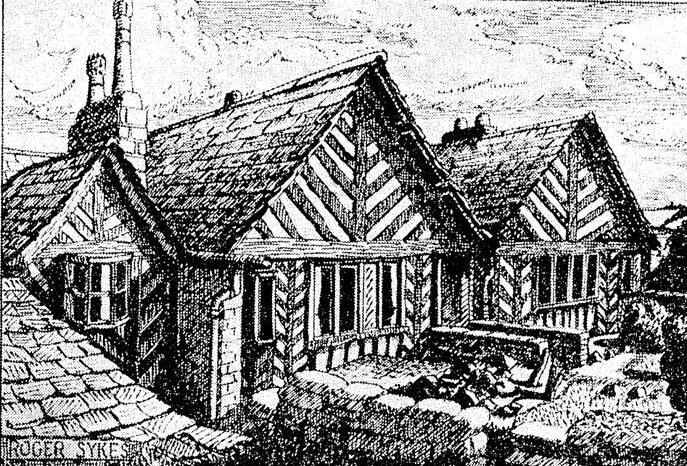
You may be curious as to why we lived in Greetland, on the far side of Huddersfield fully eight miles from Almondbury – after all I was born and bred in Castle Hill and attended the Berry Brow School down below in the valley, close to Armitage Bridge.
From Berry Brow School four of us won scholarships to a secondary school – two chose Almondbury Grammar School and the others went to the rival, Huddersfield College. I never understood why!
After the war I learnt from Harry Taylor that the few students who lived in the West Riding had to submit monthly reports on progress, attendance and behaviour so that Huddersfield Borough Council Education Committee could be paid.
We had moved for family reasons to Greetland. I was allowed to stay at the Grammar School because of the single trolleybus journey and my new school uniform had used up our clothing coupons.
Returning to the sketch, I have always been drawn to the wonderful old farm houses and halls in the millstone grit country. I have studied the stonework, wonderfully marked with age, invested with time. They need to be cared for and carefully maintained. It is a worthwhile investment.
Old Sunnybank, Greetland
It is difficult to explain the attraction of old buildings – as opposed to grand palaces. You have to just stop and stare for a while and the character will emerge. You will feel a need to explain the shape of each window or doorway. I
Old Sunnybank is of particular interest as it is believed to be the oldest house in Calderdale. The building still exists today; the original oak crossmembers are still in place but the infillings of daub, or dung, or clay have been replaced with local stone. It is a Grade II* listed building.
It is clear from the three different rooflines that this is an important
have to look closely in sketching, perhaps concentrating closely at detail in a way not favoured in modern times. It is easier to take a photograph but not so rewarding.
An old building is peaceful.
surviving partly timber framed building of quite complex development. The house was not built all at once; this is clear from timber posts in the south wall and the cross-passage which are not placed where they should be to support the existing structure.
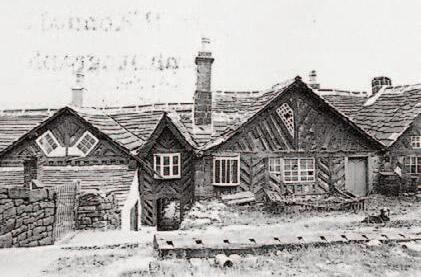
The original name of the house was Over Nabroyd, but it was changed to its present name by the vicar of Halifax, Thomas Wilkinson (1438-1480). The deeds show that in 1472 the house came into the ownership of Thomas Wilkinson and in 1544 it passed to Henry Savile of Bradley Hall. It would appear that the Saviles rebuilt the house before 1577.
The photographer, Hugh Percy Kendall, was a founder member of the Halifax Antiquarian Society in 1900 and a frequent contributor to their transactions. He was also a former president of the Halifax Photographic Society. He died in 1937 at the age of 62.
SOURCE:
‘FROM WEAVER TO WEB’
Online visual archive of Calderdale history
https://tinyurl.com/y5j2gmbp

Having moved to the US in 1981, Charlie successfully rebuilds his career from scratch – illustrating anything and everything. But part-time work as a news graphic artist leads to a new career in television broadcasting.
PART 3 previous TV or video experience beyond making several animated short films at college, but my co-workers were generous with their help as I learned the necessary new skills.
Ashift into television production came about when in 1985 I answered an ad for a ‘part-time TV news graphic artist’ position at New Jersey Network studios in Trenton, the State capital. This unexpectedly led to a career in Public Broadcasting spanning more than two decades.
Even the tight deadlines of newspaper production hadn’t prepared me for the hectic pace of television news.To its credit, the mainstay of NJN Nightly News was issues-centric journalism, unlike the majority of channels whose coverage relied on crime, car crashes, and celebrity stories to draw an audience.
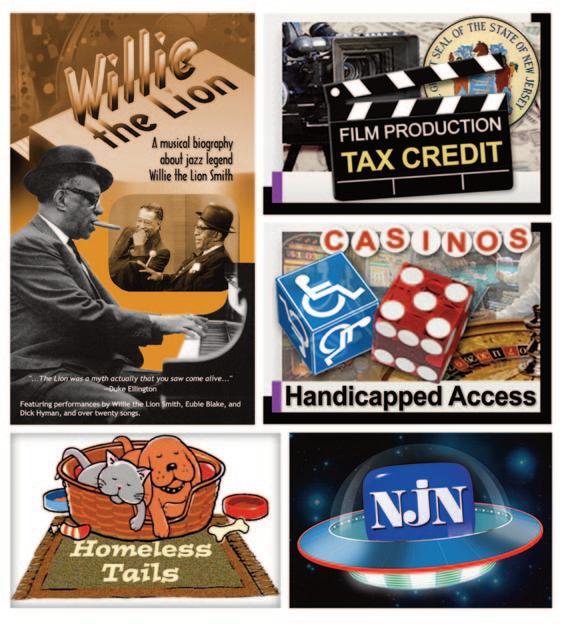
A friendly and positive can-do spirit pervaded the station’s art department. I had no
Initially, creating graphics for broadcast was a laborious hands-on process involv-
ing pencils, markers, airbrush, Letraset, transparent overlays, magical spells, and noxious darkroom chemicals, until our department was gradually transformed and streamlined by the introduction of newfangled Apple iMacs and Adobe software.
Becoming more involved with the station’s arts programming led to further creative opportunities, happily resulting in several Emmys and a Cine Golden Eagle Award. The NJN productions I worked on ranged from ‘live’ collegiate debates and fundraising events, historical and environmental documentaries, and Homeless Tails pet adoptions, to Hispanic and African-American themed magazine shows. I even got roped into recording –unpaid–voiceover ‘cameos’ when a British accent was occasionally required, no doubt violating a number of screen-and-radio actors’ union laws.
One of the many imported British shows which proved popular with NJN viewers was Doctor Who, especially the early black and white episodes that survived the notorious BBC tape library purge. During the 1980s our station produced several Doctor documentaries and hosted ‘Who-
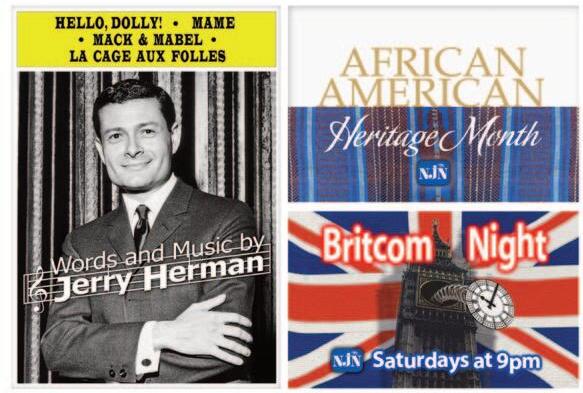
vian’ on-air fundraisers; our scenery department even constructed an authentic, full-size TARDIS prop for use onstage by actual visiting Doctors including Patrick Troughton, Peter Davison, and Sylvester McCoy plus companion Sophie Aldred. I wonder whatever happened to that excellent TARDIS prop after filming was completed... it certainly didn’t end up in my garage, that’s for sure. Ahem.
Unlike the BBC, the Public Broadcasting Service in America is largely funded by endowments and donations from corporations and private citizens. NJN was also dependent on money derived from State taxes. In 2011, not long after our news show aired a less than flattering investigative story about his personal finances, then-Governor Chris Christie used the spurious political excuse of “saving taxpayer money” to defund and shut down NJN, capriciously ending the station’s forty-year history in the blink of an eye.
I was lucky to find freelance work at WPIX Channel 11 in NewYork City but, surprisingly, switching gears from ‘serious’ PBS commercial-free fare to a commercial tabloid TV news format was more jarring than I expected. Whereas working in Manhattan might sound somewhat glamorous, it also entailed expanding my commute from a mere ten-minute drive to a two-hour interstate journey each way by car, train, and subway. Sometimes I’d be
Not really! Despite this tongue in cheek paste-up, Charlie’s cat didn’t really upset his coffee over his many awards. As widely reported in the press (below) he had received an Emmy for a documentary in 2002 on jazz pianist Willie Smith. having previously been awarded an Emmy for his work on an NJN arts magazine.
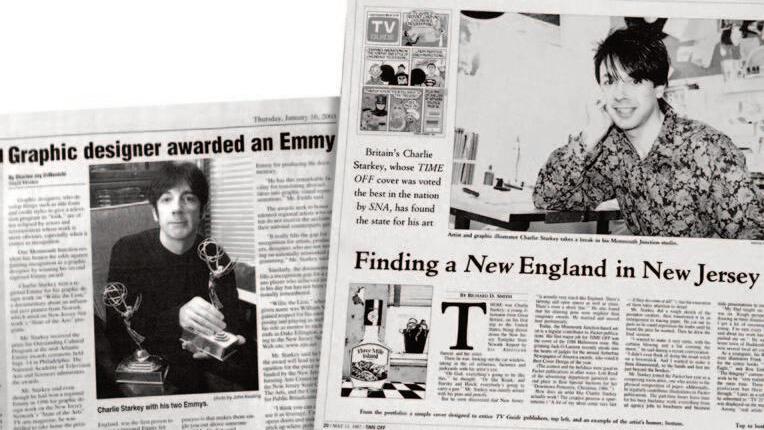
assigned to the four-hour ‘live’ Morning Show shift: that meant arriving at the 42nd Street studios at midnight and glamorously staggering bleary-eyed into the daylight at 9.00 am to catch the train back to New Jersey.
My first marriage unfortunately
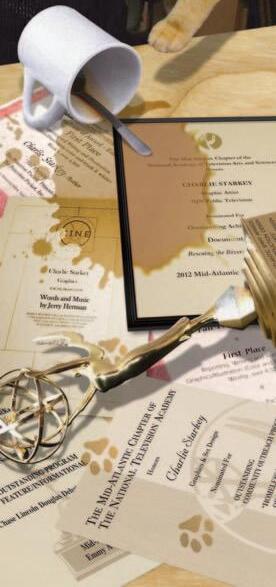
sulking and researching fine wines I met Maggie: Pennsylvanian, Information Technology specialist, animal activist, vegan, fellow Python and Beatle fan. At the time of writing I haven’t driven her completely bonkers yet so it must be going moderately well, but you’d have to check with her for confirmation.
I continued to see my Mum after I moved overseas, visiting her in the UK and flying her to America for the holidays. She eventually moved back up North, first to Bridlington and thence to Huddersfield where she remained until she drew her final breath in 2010. I’ve continued to visit Britain every few years to see my old friends, in 2015 enjoying a happy hometown reunion with King James’s Alpha classmates Philip Weavill, Robert Stockton, and Jack Stott and their families.We sank a few pints and shared a lot of laughs, lamenting how quickly the decades had flown by. Haven’t they just!
And now? Married, proud cat parent,
homeowner, collector of vinyl records and vintage toys, and nursemaid to a seventeen-year-old Mini Cooper.
I’m semi-retired, still continuing digital photo restoration and image compositing, while lazily considering returning to traditional drawing and painting. Just for fun, I spent a week in hospital in 2019 after contracting a nearlethal bout of Legionnaires’ Disease (bacterial pneumonia) and lived to tell the tale. As a weight loss programme I can’t recommend it highly enough, but it’s not for everyone.
I guess King James’s did, in retrospect, provide a strong environment for learning and self-advancement. Even when I occasionally skived off to avoid gym I could usually be found with my nose in
a book at Huddersfield Library or, alternatively, trying to make one cup of coffee last three hours in the Alassio Cafe or Studio 58 . Hidden away up a rickety flight of stairs in a dingy yard off New Street, Studio 58 boasted a colourful clientele and the best jukebox in town.
I consider myself lucky to have forged a career in art, made great friends, lived in two centuries and on two continents, and even had the good fortune to fly transatlantic on Concorde, which is probably the closest experience I’ll ever have to riding in Fireball XL5. However, if Sir Richard Branson or Elon Musk were to read this and generously offer me a seat on one of their rocketships I may yet make it into space.
Stranger things have happened. n
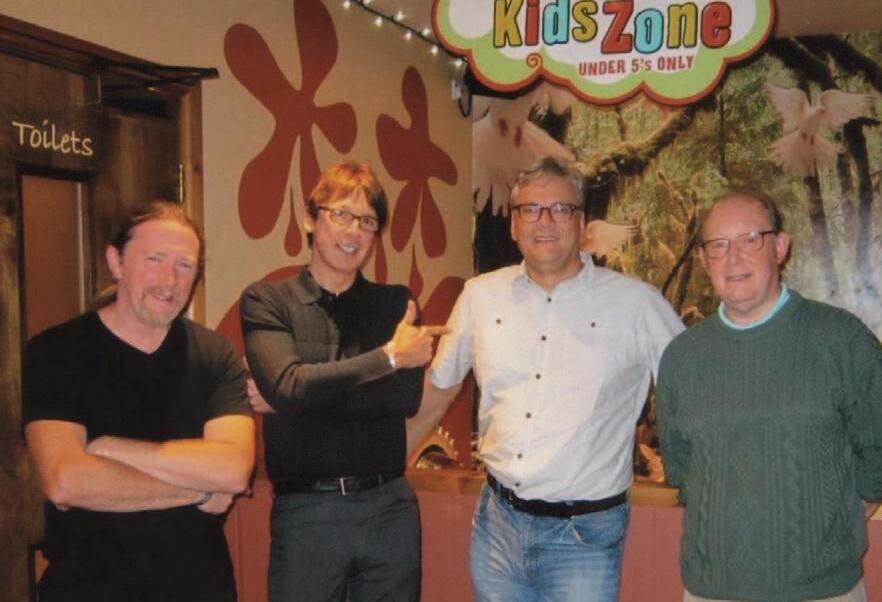
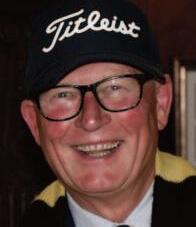 ROBIN MERCHANT robin.merchant@oas.org.uk
ROBIN MERCHANT robin.merchant@oas.org.uk
IT takes more than a mere Covid19 pandemic to prevent us from playing our annual Gothard Cup competition! Last year we held our slightly delayed event on 6th September when the winner was Simon Russell (pictured). This year’s competition is booked in at our traditional home of Woodsome Hall Golf Club on Sunday 13th June 2021 with the first tee reserved from 3.00 pm. As always the golf will be followed by a meal
and the presentation of prizes. Let’s hope things will almost be back to normal by then so we can all meet up and play!
So if you might be interested in meeting old schoolmates enjoying some good banter and also a game of golf, do come and join us. Full details will be circulated in due course.
In the meantime please do not hesitate to contact me at the email address above. n

ANDREW HAIGH andrew.haigh@oas.org.uk


REGRETTABLY, there will be no badminton played in the current season. Quite apart from the fact that Covid re strictions have meant that in door play has not been per mitted for most of the season to date, the School is not currently taking outside bookings anyway.
Because of this, we did con tinue to play tennis outdoors under floodlights at Longley, when the weather permitted, up until Christmas.
However, quite apart from the inclement weather, the new Covid lockdown has prevented any tennis being played in the new year.
As soon as outdoor tennis is permitted once again, we shall doubtless resume playing if the weather allows. We play at Longley Tennis Club on Thursday evenings from 7 p.m. and we pay £2.00 per evening to play, although a guest fee of £3.00 is also payable by nonmembers of Longley Tennis Club. n

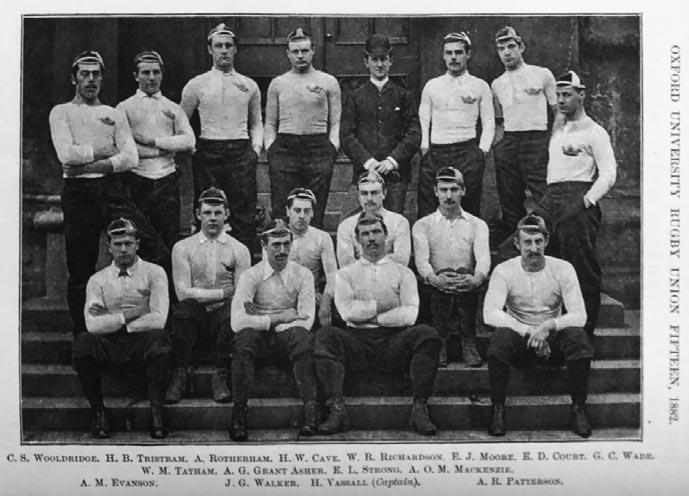 From: James Clayton (1947-1951)
From: James Clayton (1947-1951)
THE story of the Rev Francis Marshall has been well covered, both by Gerald Hinchliffe in the School history and more recently by Walter Raleigh in the November 2020 of The Almondburian . It is a remarkable story and may well be featured in the Museum of Rugby talked about for the George Hotel. If no one has done so already, I think there is enough material for someone to make a TV documentary.
I have a particular interest in the
man as my adopted county since 1965 has been Norfolk, where the Reverend is buried, following the later years of his life in the small country parish of Mileham where he went after his tormented days in his quest to keep rugby for amateur players. My article about the location of his grave appeared in the OAS magazine of September 2008-February 2009 (you can read it online at https://tinyurl.com/yxex9b2k). Seeing the photograph of the book Football - The Rugby Union Game , edited
by Rev Marshall in the last issue got me searching the internet for a copy. I was taken aback by the price being asked for some copies but managed to acquire one from Oxfam, which eased my conscience somewhat knowing that it was going to a good cause. I am now the proud owner of a first edition copy of 1892.
I was interested to see on the end paper a dedication to ‘Padre’ and signed by C S Wooldridge in 1939. He also signed the half-title page. I am not sure of the significance of that inscription but it started me off to see if I could find anything about him. I was delighted to see that he played Rugby not only for Oxford University (1882) and Blackheath (1884) but also for England. For those interested in the early game, the scoring was different to nowadays. The matches in the 1884 season were de -
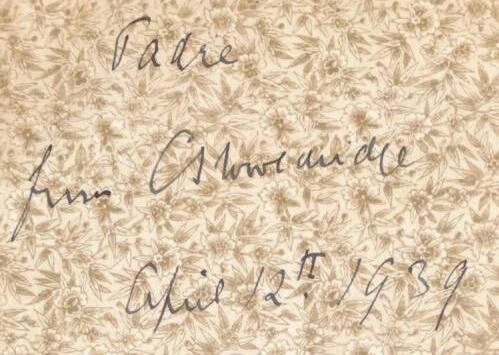
cided on goals scored. A goal was awarded for a successful conversion after a try, for a dropped goal or for a goal from mark. If a game was drawn, any unconverted tries were tallied to give a winner. If there was still no clear winner, the match was declared a draw.
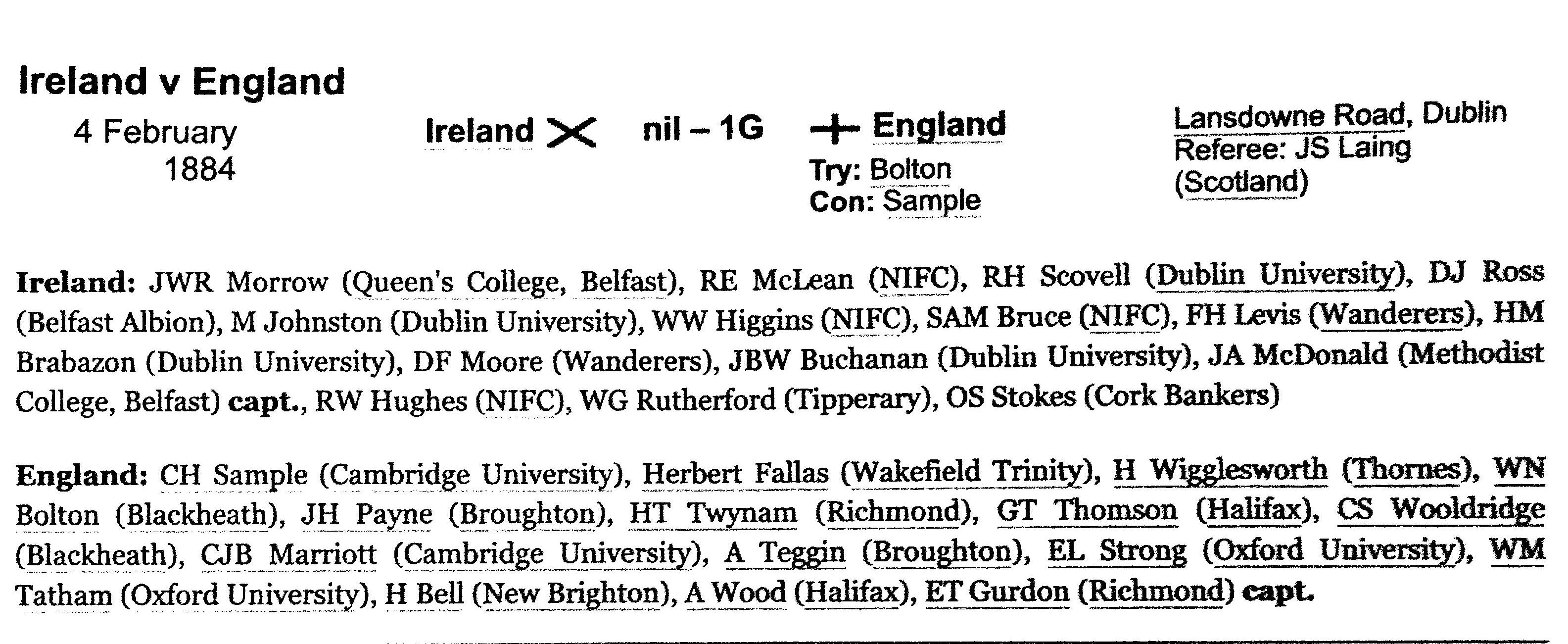
If anyone happens to be in Norfolk and would like to see where the Reverend is buried, I would be happy to lead the way.
Old Catton, NorwichLover of all sport who became a prominent member of Huddersfield Lawn Tennis Club
Colin Graham entered Almondbury Grammar School in September 1945, the son of master printer Jack Graham who ran the family printing business Brook & Learoyd in Huddersfield. He left after the fifth form to study printing at Leeds Technical College, where he gained first class honours to join the family business.
At school, Colin proved himself to be an outstanding tennis player and was a keen member of the tennis team. He joined Huddersfield Lawn Tennis Club in 1949, while still at school, became a committee member in 1954 and was Chairman from 1983 to 1987. Colin was the Huddersfield district representative on the Yorkshire Tennis Council from 1974 to 1985 and was President of Yorkshire Tennis in 1988. He refereed the Huddersfield Open Tournament for 12 years from 1974.
He retained his love of sport throughout his life, representing Yorkshire at tennis, squash and badminton. Later, he became a very successful tennis and squash coach. Colin was also a keen cricketer, and was a goalkeeper for the YMCA football team.
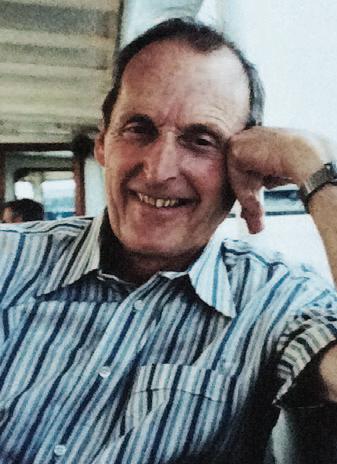
Another love was fell walking and mountaineering with a friend in the highlands and islands of Scotland (which included a mission to sample as many whiskies as they could) and to visit golf courses on the way. However, golf irked him greatly, claiming that he was best at
playing sports with a ‘moving ball’. “Golf balls just sit on the ground waiting for you to do something amazing, which unfortunately doesn’t always happen,” he said ruefully. Despite this he became a valued member of Woodsome Hall Golf Club.
On retirement, Colin took up gardening with the same precision and enthusiasm he had run the family business.
Colin was 54 when he married at Huddersfield Register Office in 1989. Although he and Sue had no children together Colin became a devoted stepfather to Tim and Dan.
Colin Graham, born 20th March 1934, died 8th September 2020 aged 86.
We are sad to report the death, from Parkinson’s Disease, of Alan Marshall
Son of Jack and Kathleen, Alan was born in Crosland Moor in 1952. He entered King James's Grammar School in 1963, joining his brother David who had entered the previous year. In 1970 he left school to study Electronics at Essex University.
From there he took up employment with the large mainframe computer company ICL, based in Kidsgrove near
h is boating activities by becoming a coorganiser of annual canal holidays. In 2003 he achieved a lifelong ambition of sailing through the Standedge Tunnel under the Pennines.
As a computer professional, it was only natural that the advent of home computers should lead to an enthusiasm for computer games that included his own unique implementation of a cardmatching game in BBC Basic.
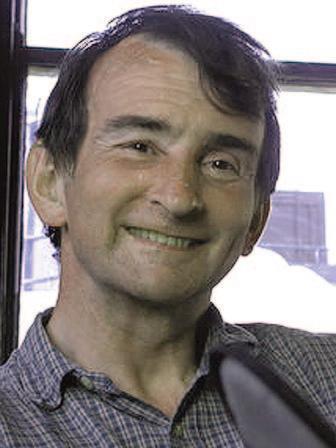
An avid reader, Alan particularly enjoyed fantasy novels, names from which would often provide a wide range of obscure passwords for his many computer files.
During his university days, Alan – an able guitarist – had become keen on folk-rock music. In later years, his rendition of The Ballad of Matty Groves, whilst simultaneously steering a narrowboat and at a volume to compensate for the engine noise, was greatly admired.
Stoke-on-Trent. In the course of a successful career with the company, Alan represented them on various committees around Europe and the USA.
Alan developed an enthusiasm for yachts and dinghies, and soon expanded
Alan was diagnosed with Parkinson’s in the 1990s and took a leading role in the local self-help group. Although he had to take early retirement from ICL, he continued to enjoy canal holidays until 2014, using determination to fight his deteriorating eyesight. To the end, he bore the terrible burden of his illness with optimism and fortitude, greatly enoying the visits of his many friends to his home at Malton, North Yorkshire.
Alan Keith Marshall, born 6th December 1952, died 16th November, 2020 aged 67.
Information technologist also remembered for his exploits as an OAS AFC goalkeeper
Whilst not among the most gifted academically in his time at King James’s, Andrew ‘Fluff’ Firth went on to a well-respected career in information technology. Self-taught, he gained Microsoft accreditation and set up his own systems architecture company. His clients in the UK included the Police and Ministry of Defence, and he expanded to operate worldwide.
Andrew’s family lived in Oakes during his time at King James’s, he had two sisters and two brothers. He was married to wife, Corinne, for almost 40 years and they latterly lived in Grimsby. He revived his goalkeeping career to play in the 2008 ‘over 55s’ Old Almondburians’ match for the 400-year School anniversary. He also attended several OAS dinners in subsequent years, sitting with his 1960s colleagues and complaining loudly when speeches overran and prevented his reminiscence conversations.
He had tremendous enthusiasm for sport, mainly football. However, he also played cricket for Dartmouth in house matches where his eccentric wicketkeeping – standing up to the stumps and throwing himself about – brought to mind his goalkeeping. He played football for School teams in goal and afterwards joined the Old Almondburians’ AFC when they were fielding four teams on a Saturday. He quickly established himself as First XI goalkeeper in a team where other notable players
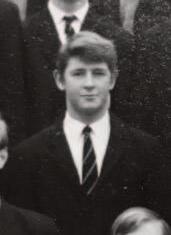
were Doug Norris, Tony Lockwood, Paul Wilson, Gez Whithead and Simon Russell. Andrew played from the late 1960s to the end of the 1970s.
He is remembered as a gregarious character, always turning up immaculately dressed. He was a brave and generally dependable goalkeeper for the Old Almondburians, quite animated and vocal to both team-mates and opponents alike. On one occasion, away to keen rivals Old Modernians, Andrew (and his colleagues) had put in a particularly below par performance and had conceded 7 goals. An indignant Andrew sat in the changing room afterwards, threw his boots down and proclaimed “The 1st,4th and 6th goals were my
fault, but I’m not taking the blame for the rest.” On another occasion at a very muddy Leeds Road playing fields, a through ball landed in a huge puddle. As Andrew came out to collect, the opposing player swung a boot at the ball sending mud and water into his eyes, leaving him unable to see. The opponent was then able to retrieve the ball and dribble it into an empty net. Andrew was not amused.
He is also remembered as being im -
maculately turned out on Saturday afternoons – three-piece suit, fob watch and chain, pocket handkerchief and highly polished shoes. He was a keen Huddersfield Town supporter and arrived at home matches in similar attire.
He lives on in the memories of his class and team mates.
Richard Teale, with memories from Doug Norris and Simon Russell Andrew Firth, born 16th May 1950, died 22nd June 2020 aged 70.
John Hilton Dyson (KJGS 1948-1954)
Consultant who worked extensively abroad but retained close links with Huddersfield
John Dyson has sadly died in Oslo of Covid-19 on 8th December 2020.
He came to Almondbury Grammar School with a disadvantage – his home was only a few doors away from his 1A form master Walter Haigh – but he did have an older cousin already attending. His new school uniform fell victim to the clay on ‘The Bunk’ and the spikes on the holly bushes. Letters were sent!
He stayed for six years before joining Armitage & Norton in the centre of town to learn accountancy. A tough five years, with full time days at work followed by studies in the evenings, resulted in a Chartered Accountancy qualification. He soon realised that auditing was the tip of the business, commerce and industry iceberg and there were many other exciting opportunities.
From 1963 to 1967 John was financial controller for the Salts (Saltaire) Ltd
textile group and then for Hepworth Iron Co (later Hepworth Ceramic Holdings) near Penistone. For recreation John played football for the Old Almondburians and Huddersfield Amateurs, and tennis at the Longley Club.
An unsuccessful linguist in school, John surprised himself by falling for a Norwegian girl whom he met in 1964 in a corner shop near his home. In 1966
John and Toril were married in Oslo and went immediately into the baby boom business with a daughter, Nina, born in 1967. Their second daughter Kristina was born in 1971.
In 1967 John joined the Manchester office of consultants Peat Marwick Mitchell and over the next five years had a variety of managerial problems to engage with. One key client was Manchester Liners Ltd , a firm running the first containerised shipping service between the UK and the north-east coast of America and John soon moved his
young family to Montreal, commercial capital of French-speaking Quebec province.
Three years later he renewed his contract with Peat Marwick . Based in their Montreal offices, his work took him criss-crossing the USA and Canada, a very demanding lifestyle. In 1976 he was privileged to be involved with the Montreal Summer Olympics when Toril was on the Norwegian Olympic Organising Committee, giving them access to social and sporting events.
Political upheaval in Quebec Province in November 1976 destabilised the commercial scene as many English-speaking firms responded to the new separatist provincial government by moving out. The Dysons relocated to Norway where John had to
face the new language challenge, Norwegian. He worked first for an international firm of Consulting Engineers and Architects working in Africa and the Far East, and then developed a practice in Norway for Arthur Young & Company . This coincided with the development of the offshore oil and gas industry, producing work for him all over Europe, including the UK. John and Toril soon adjusted to the Norwegian pace of life and the outdoor pursuits of sailing, skiing, cycling, fishing and walking. Family activities flourished.
In 1989 Arthur Young merged with Ernst & Whinney so John and others set up their own firms taking their clients with them. John ran a lean operation, with his wife as co-director, contracting-in services when needed while employing zero staff.
He always maintained his Huddersfield contacts. He was heavily involved in the first ‘Class of ’48’ Reunion in 1998 but missed a later event as he was returning that day from a visit to his married daughter and his two young grandsons in Montreal. He and Toril did attend the Woodsome Hall reunion.
John is survived by Toril, their daughters Nina and Kristina, and their grandsons, Elliott and William.
Gerald Stead (KJGS 1948-56)
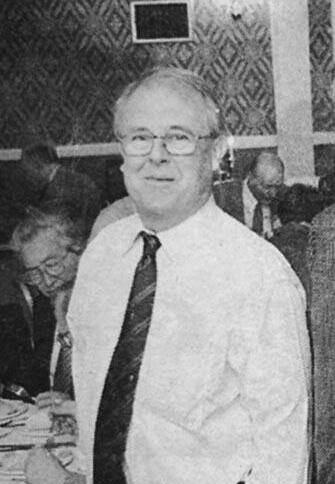
With thanks to Jenny & David Lockwood (KJGS 1948-53) and Pat & David Earles (KJGS 1947- 52).
John Hilton Dyson, born 15th February 1937, died 8th December 2020 aged 83.
Chairman
WALTER RALEIGH
15 Thorpe Lane, Almondbury HD5 8TA Tel: 01484 308452
Email: walter.raleigh@oas.org.uk
Secretary
ANDREW HAIGH
2 Arkenley Lane, Almondbury HD4 6SQ Tel: 01484 432105
Email: andrew.haigh@oas.org.uk
Treasurer
KEITH CRAWSHAW
5 Benomley Drive, Almondbury HD5 8LX Tel: 01484 533658
Email: keith.crawshaw@oas.org.uk
Media Editor
ROGER DOWLING
Orchard House, Oughtrington Lane, Lymm, Cheshire WA13 0RD
Tel: 01925 756390/07815 601447

Email: almondburian@oas.org.uk
Assistant Media Editor
RICHARD TEALE
The Sycamores, 239 Huddersfield Road, Thongsbridge, Holmfirth HD9 3TT Tel: 07810 313315.
Email: richard.teale@oas.org.uk
KJS Representative
ABBIGAIL TERRY
King James’s School, St Helen’s Gate, Almondbury HD4 6SG Tel: 01484 412990
Email: abbi.terry@oas.org.uk
Website: www.oas.org.uk
The Almondburian is distributed to OAS members free of charge. Price to non-members: £3.00
Arkenley Lane dairy farmer Arthur Pilling (1928-31) who recalls that former headmaster Taylor Dyson often visited the farm and was particularly fascinated by the milking machines. Former teacher William Braide (1936-39) talks extensively about his three years at the
School which he describes as ‘the happiest of my whole teaching career’. Music also features in the interviews: you can hear wonderful singing from former international baritone (and Town footballer) Jeffrey Neilson Taylor (1940-47), and some great pieces from the Temperance Seven, a top group of the 1960s in which John Watson (1948-53) used to play banjo.
Sadly some of those interviewed on the longer with us; they include for my history master and OAS stalwart Francis Bareham. I must confess that History was never my favourite subject at school, mainly because Francis was so keen on what he called his ‘slip tests’ at the end of each lesson to see how well one could remember one’s dates. I always failed these miserably so I couldn’t resist turning the tables when I interviewed Francis by subjecting him to a History slip test of my own (well, wouldn’t you?). I was secretly pleased
Lover of all sport who became a prominent member of Huddersfield Lawn Tennis Club
Colin Graham entered Almondbury Grammar School in September 1945, the son of master printer Jack Graham who ran the family printing business Brook & Learoyd in Huddersfield. He left after the fifth form to study printing at Leeds Technical College, where he gained first class honours to join the family business.
At school, Colin proved himself to be an outstanding tennis player and was a keen member of the tennis team. He joined Huddersfield Lawn Tennis Club in 1949, while still at school, became a committee member in 1954 and was Chairman from 1983 to 1987. Colin was the Huddersfield district representative on the Yorkshire Tennis Council from 1974 to 1985 and was President of Yorkshire Tennis in 1988. He refereed the Huddersfield Open Tournament for 12 years from 1974.
He retained his love of sport throughout his life, representing Yorkshire at tennis, squash and badminton. Later, he became a very successful tennis and squash coach. Colin was also a keen cricketer, and was a goalkeeper for the YMCA football team.

Another love was fell walking and mountaineering with a friend in the highlands and islands of Scotland (which included a mission to sample as many whiskies as they could) and to visit golf courses on the way. However, golf irked him greatly, claiming that he was best at
playing sports with a ‘moving ball’. “Golf balls just sit on the ground waiting for you to do something amazing, which unfortunately doesn’t always happen,” he said ruefully. Despite this he became a valued member of Woodsome Hall Golf Club.
On retirement, Colin took up gardening with the same precision and enthusiasm he had run the family business.
Colin was 54 when he married at Huddersfield Register Office in 1989. Although he and Sue had no children together Colin became a devoted stepfather to Tim and Dan.
Colin Graham, born 20th March 1934, died 8th September 2020 aged 86.

THE lifting of government restrictions finally gave the green light for the Old Almondburians’ tennis season to start on Thursday, 11th June. Of course, having endured two and a half months of lockdown in beautiful weather, the day dawned wet and proceeded to get wetter as it progressed!
Never mind; another beautiful week ensued and everyone planned to take beer for an alfresco, socially-distanced après. Come 18th June, the forecast was for a 100% chance of rain in the morning, reducing to an 83% chance of rain by 7 pm. It didn’t reduce even by that much; tennis was called off and everyone drank their beer at home!
Week three, 25th June, came along and with it some dry weather. Just four stalwarts turned up, but at least it was dry and at least we played tennis.We bettered that on 2nd July, when the morning rain had reduced to spitting by the evening and five of us played. Our usual watering hole after sport, Almondbury Conservative Club, remained closed, so af-
terwards we enjoyed a socially-distanced beer outside the clubhouse.
By 9th July, the rain had returned, but since then the only interference from the elements came on 27th August. Other than that, we have played almost every week.
Our holiday took us to my wife’s family croft on the Isle of Lewis. Despite being in a remote location, since I was on holiday with another Old Almondburian, as well as two current Almondburians I was inspired to stage Old Almondburians’ tennis at an ‘away’ venue. We therefore made arrangements to play on the nearest tennis court, a little over an hour’s drive away at Bunabhainneader on the Isle of Harris –regarded as the world’s most remote! There, we thoroughly enjoyed a couple of hours of tennis in a setting even more beautiful than Longley.
Since the prospects of Old Almondburians’ badminton returning at school any time soon look remote to say the least, we are continuing to play tennis under the floodlights at Longley, so long as the weather permits. n
